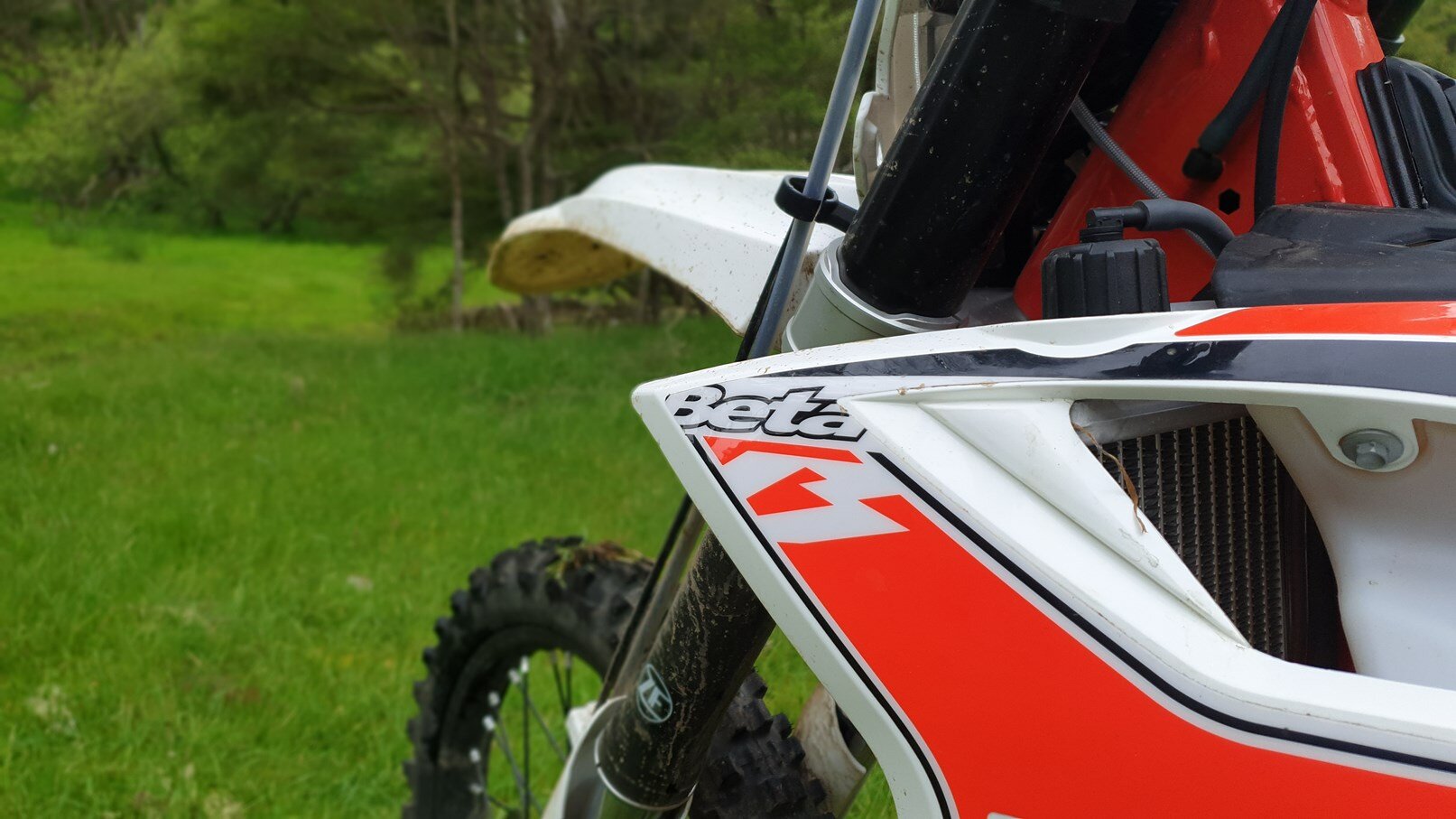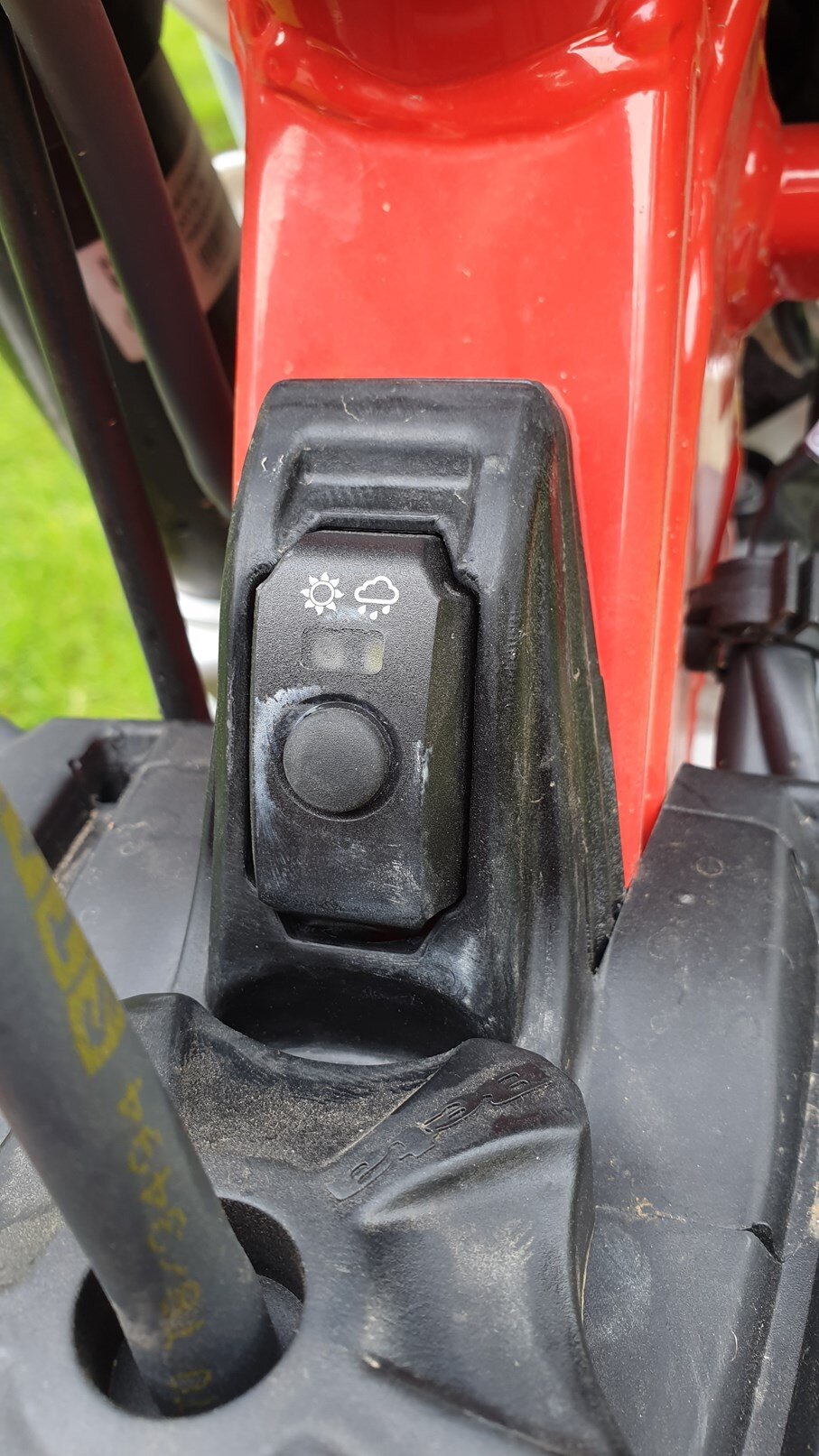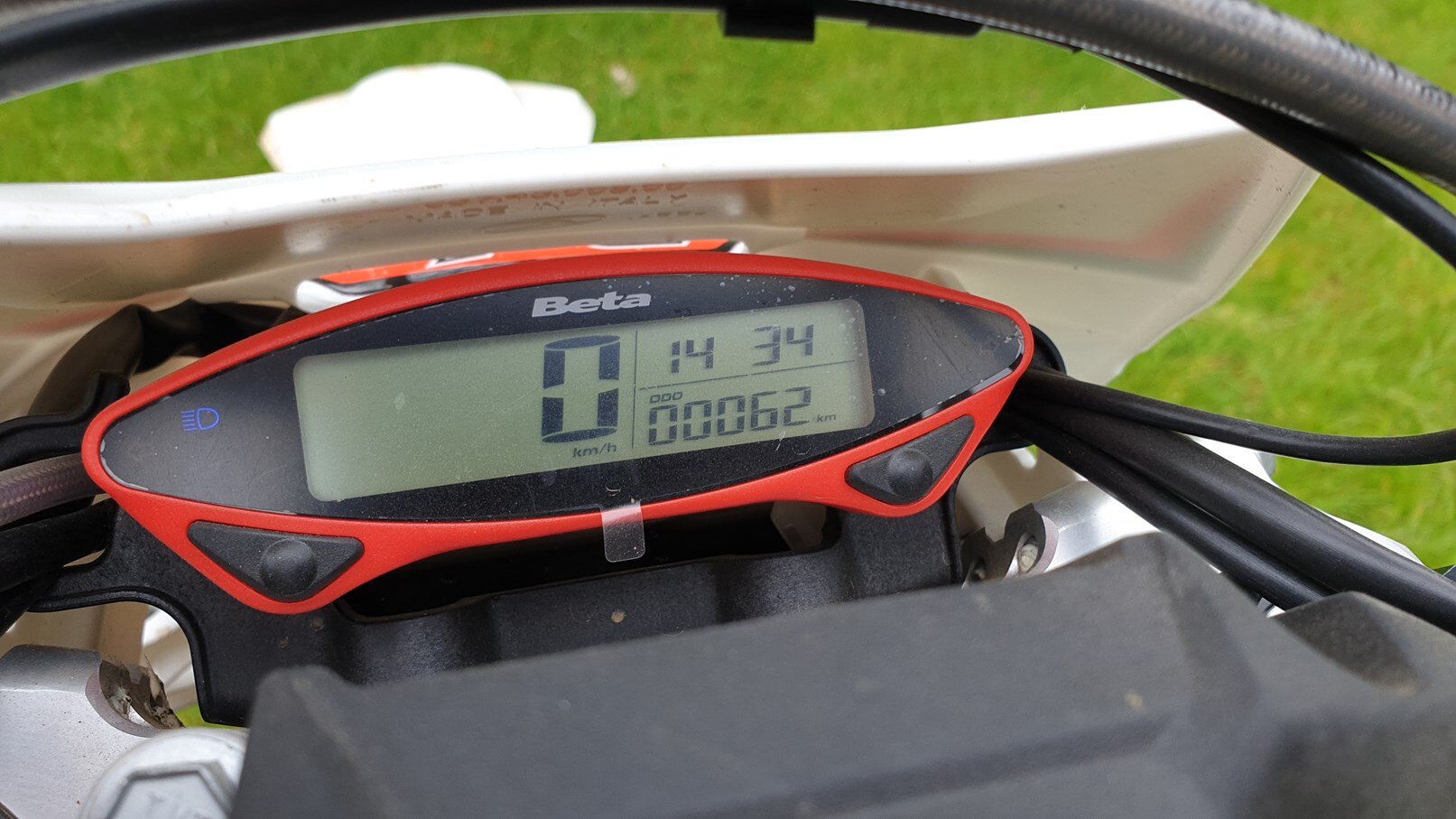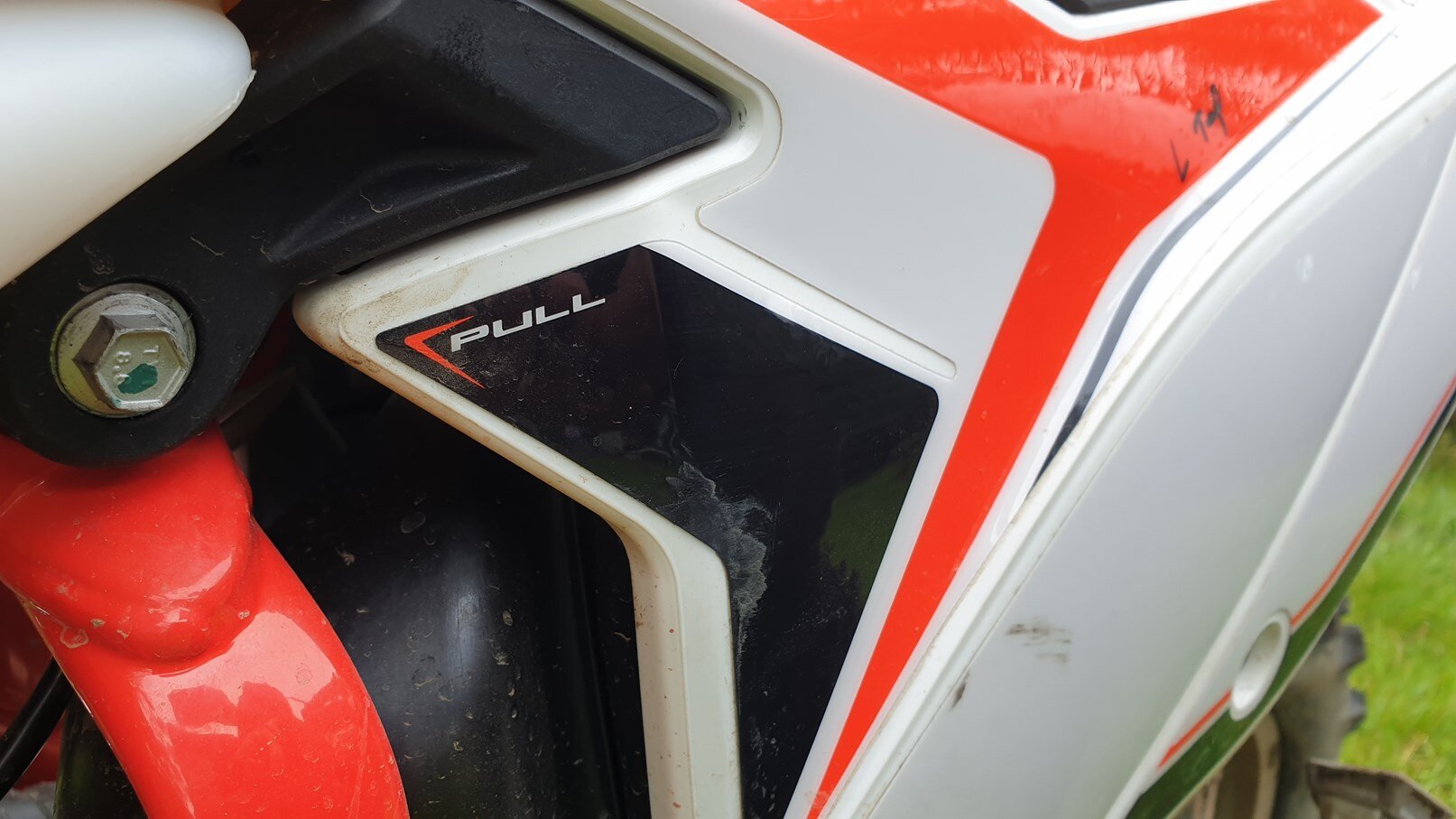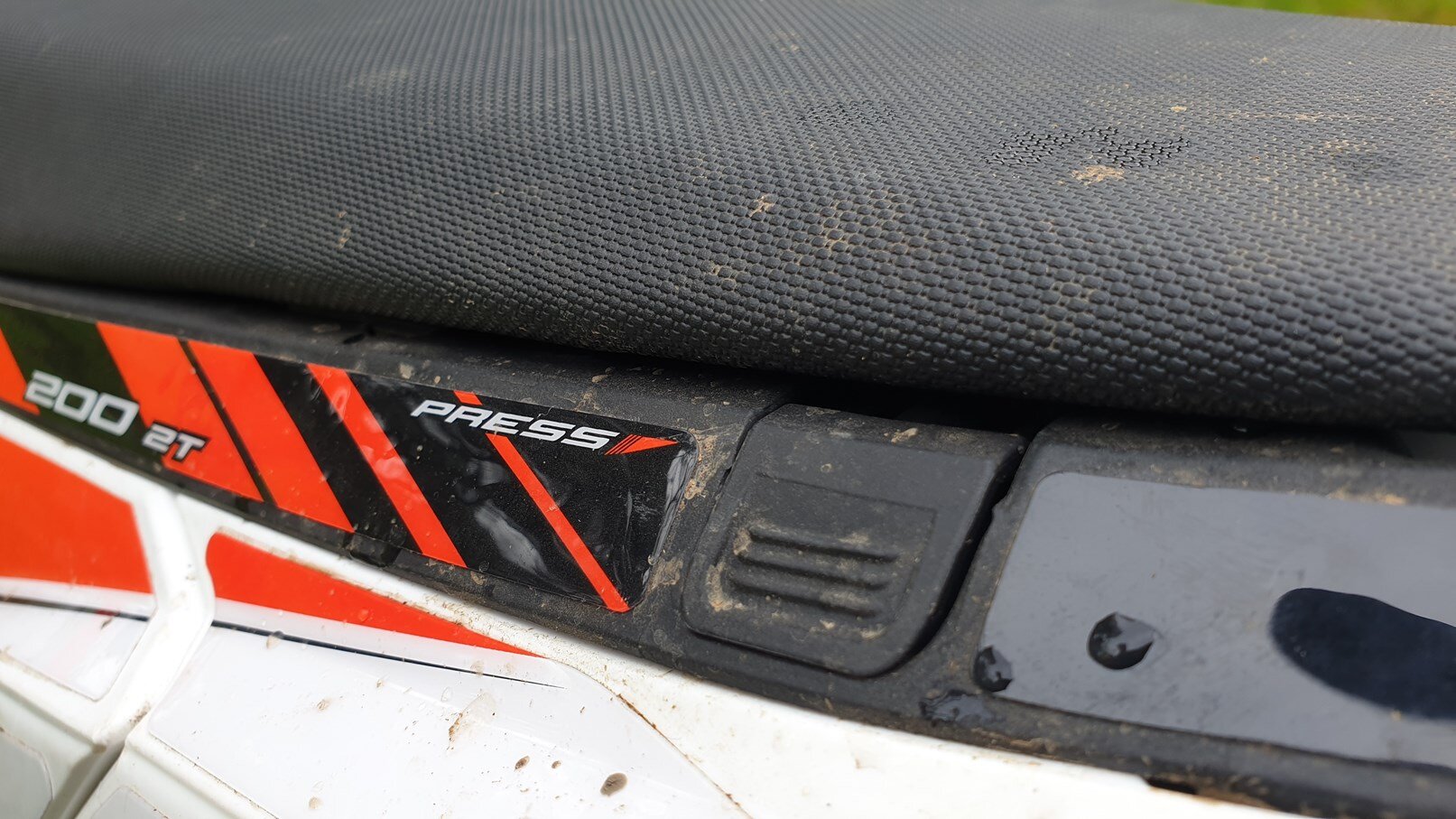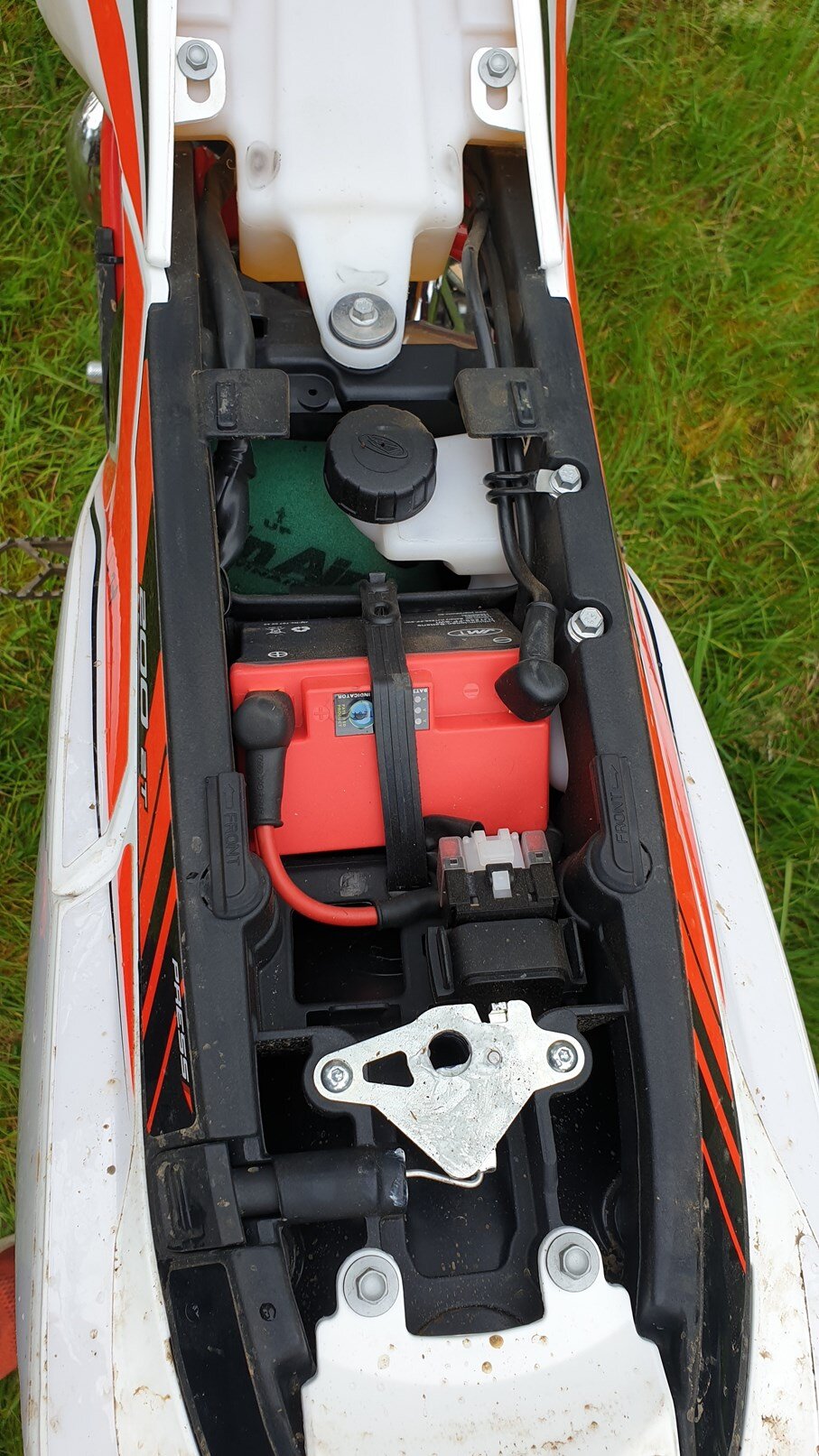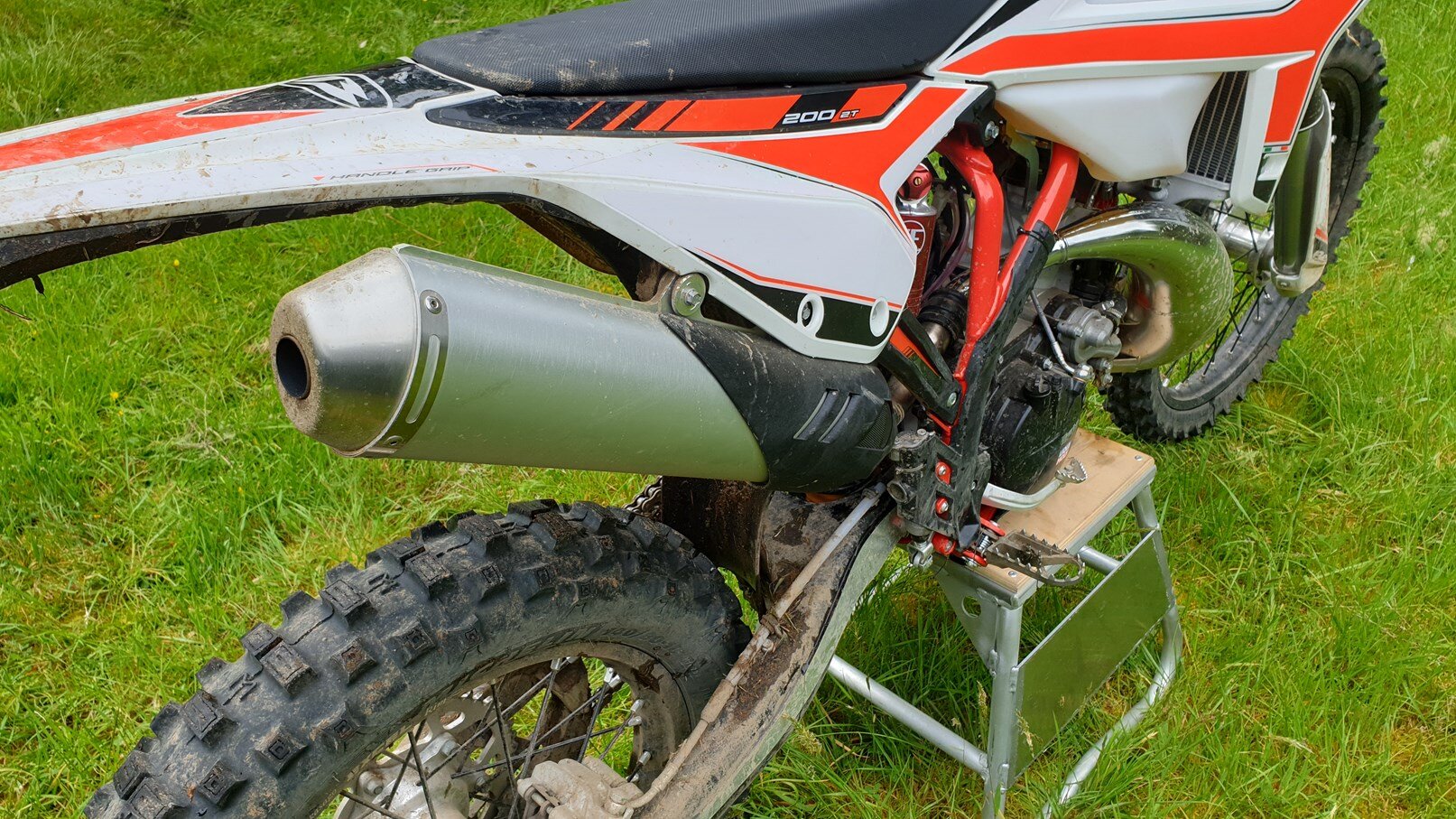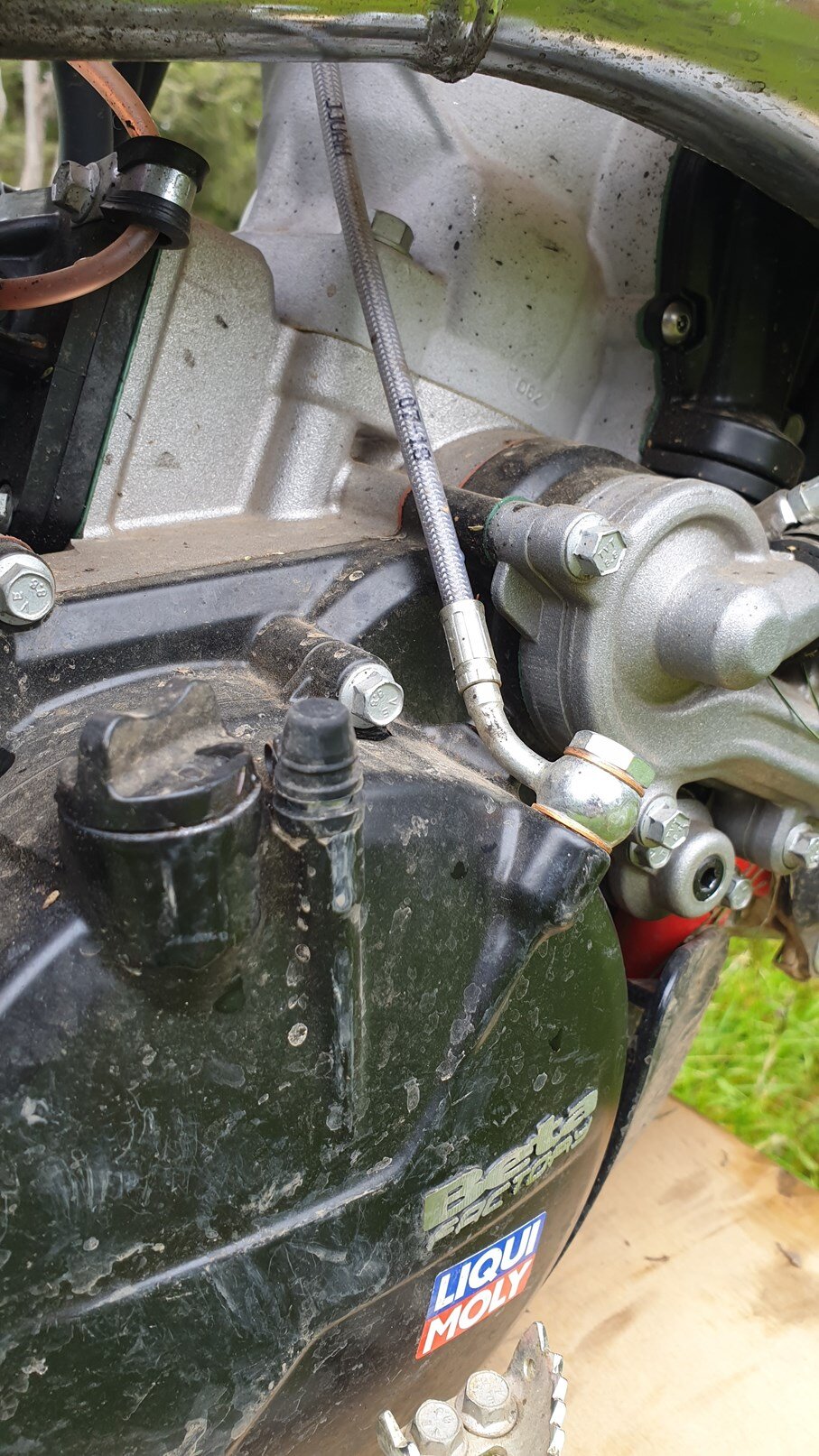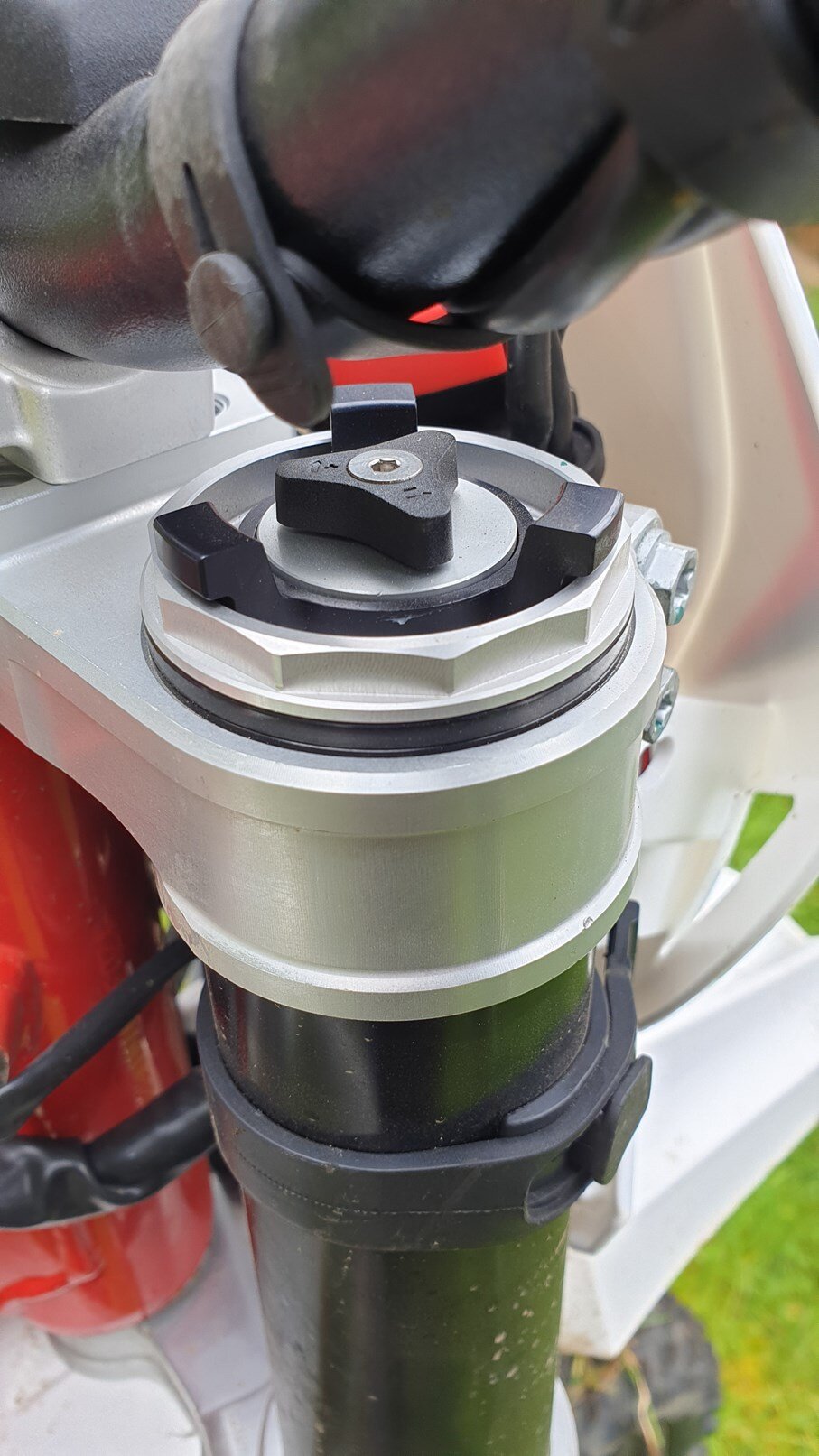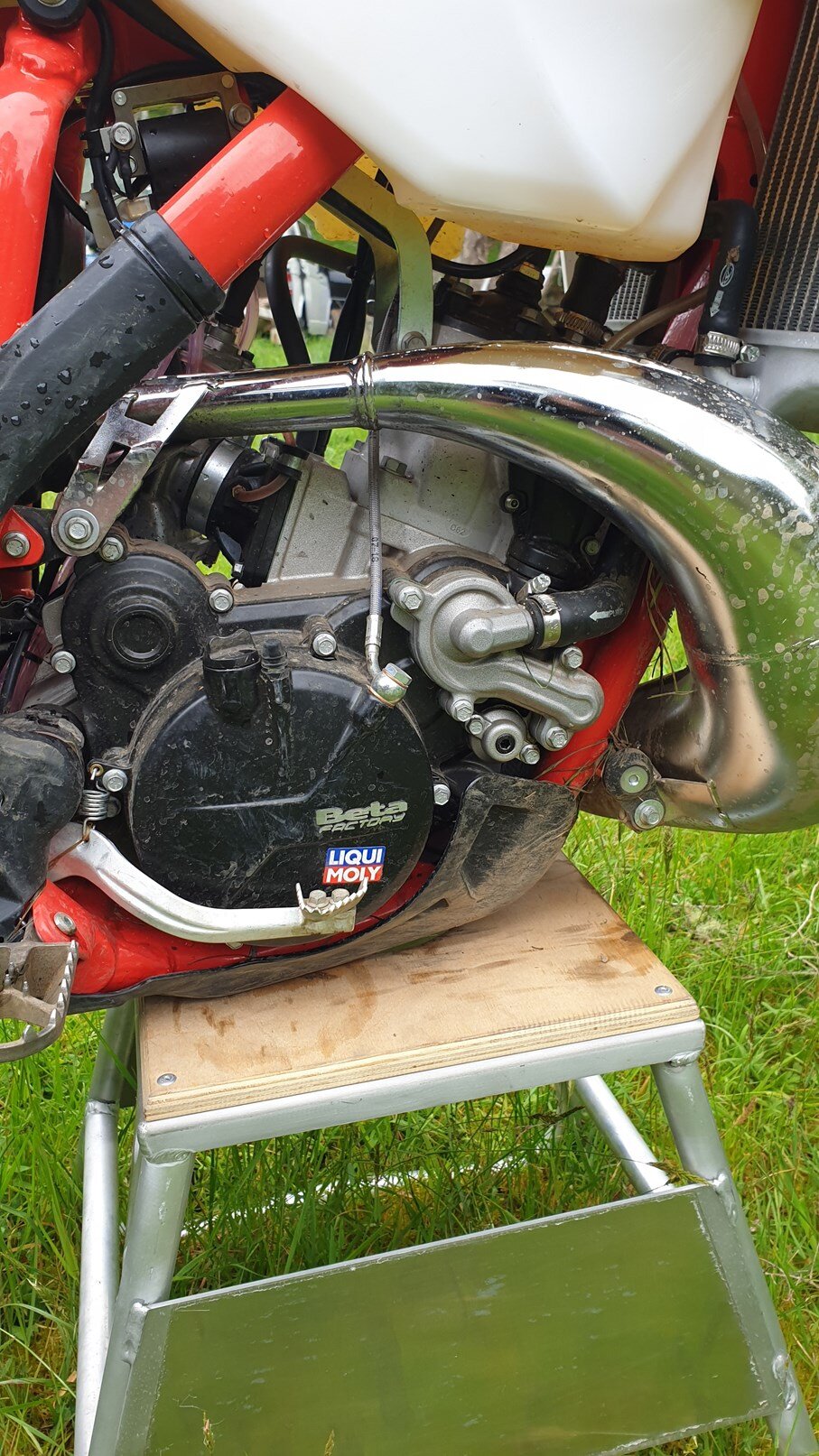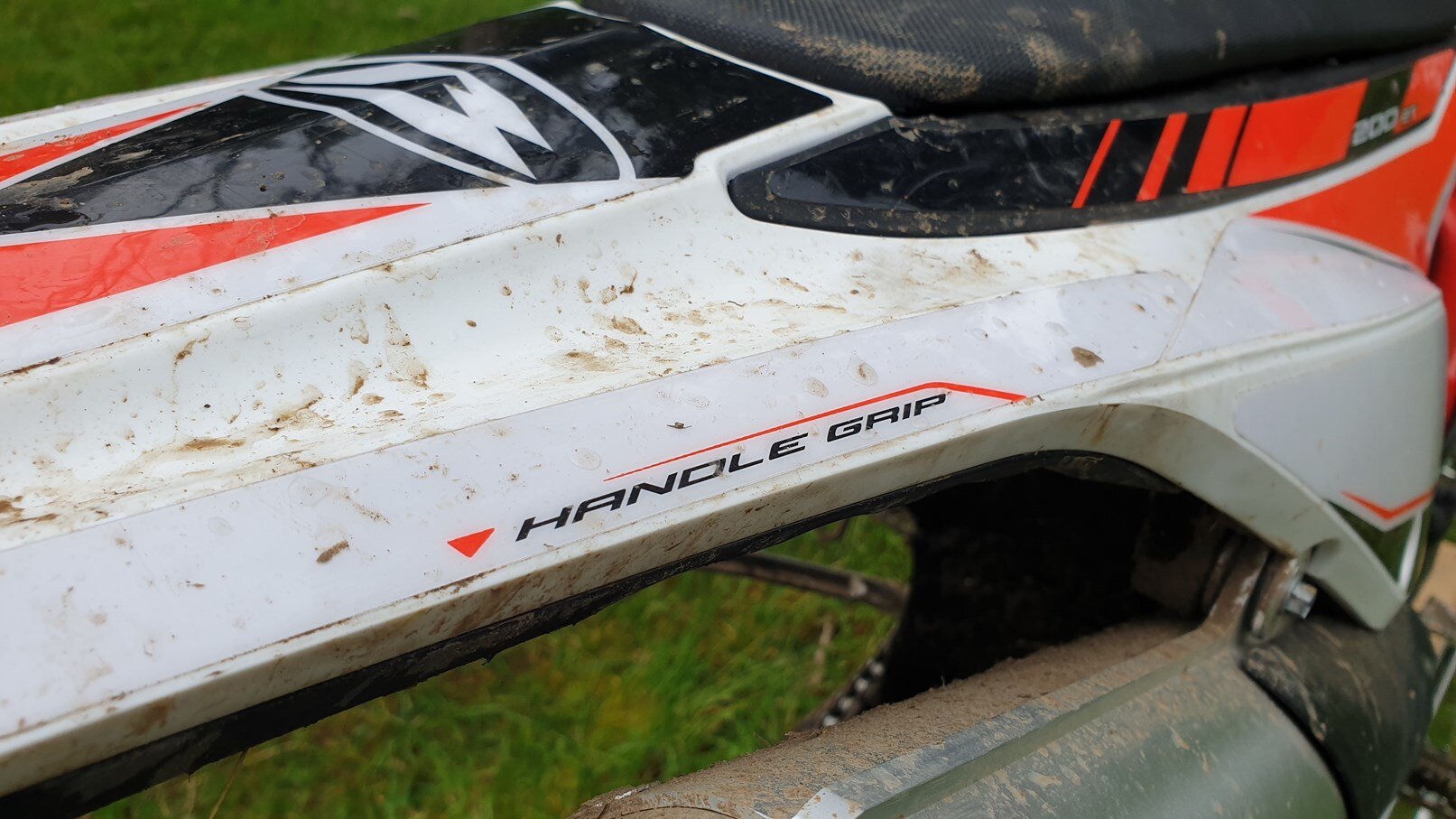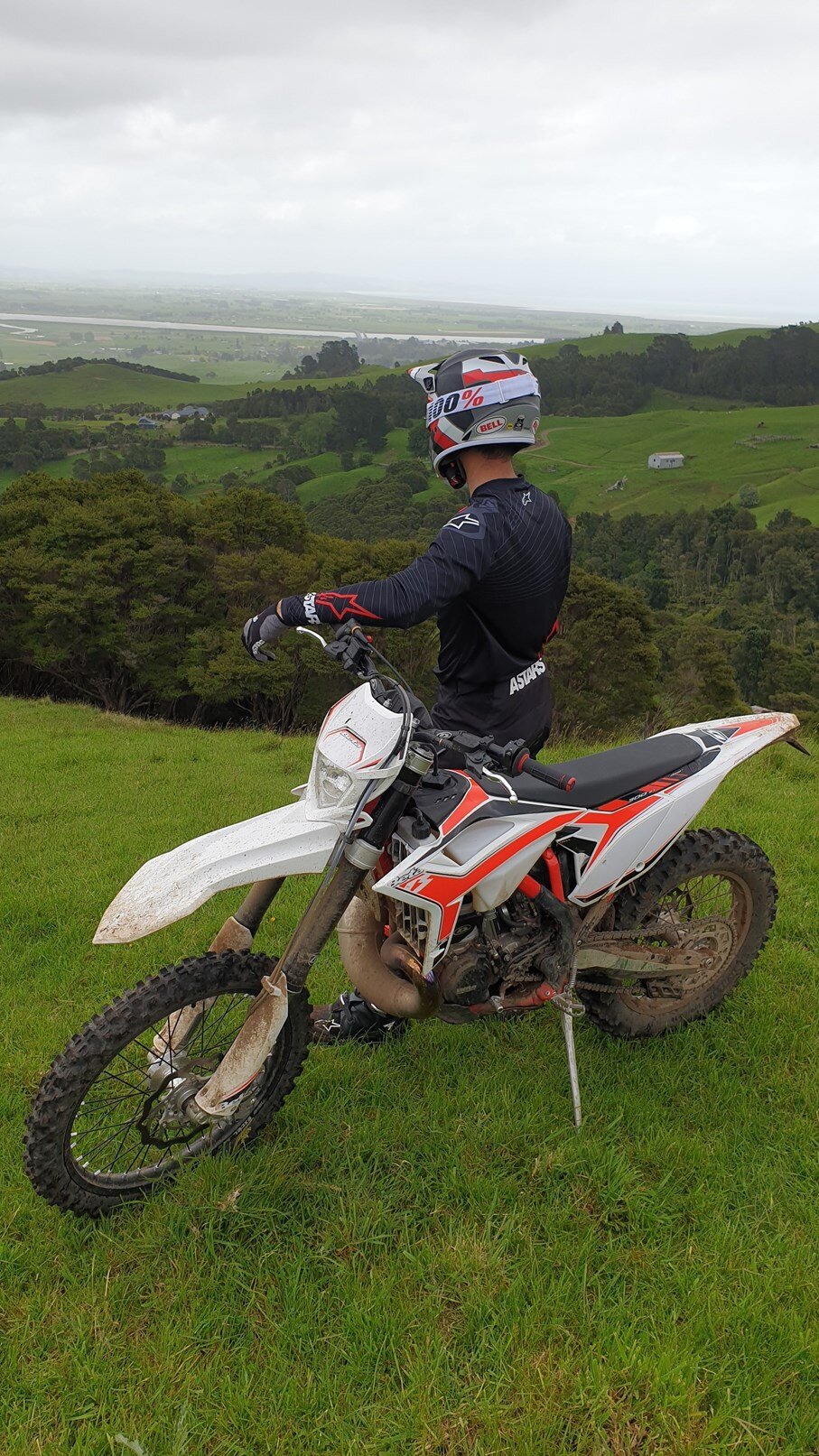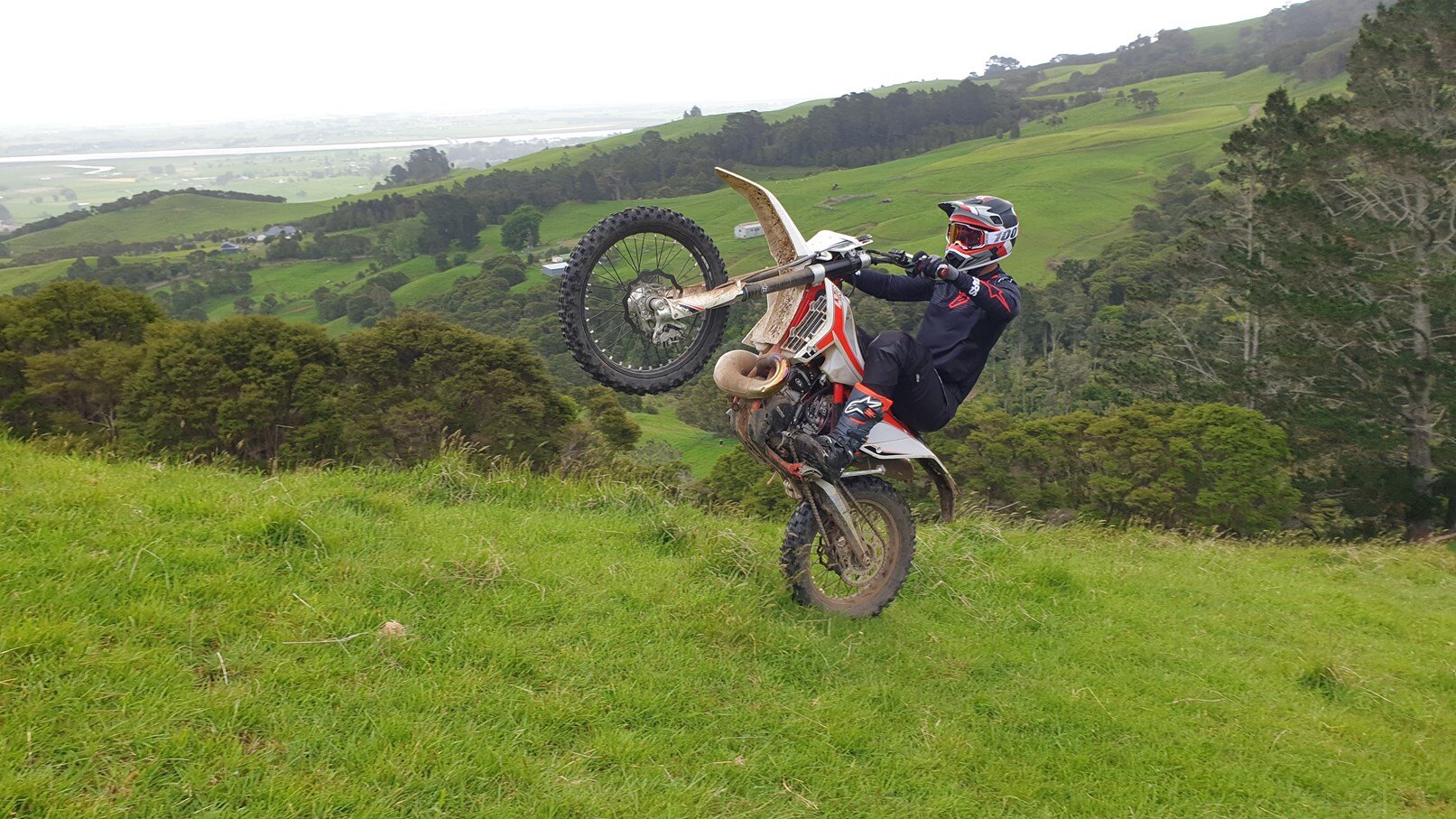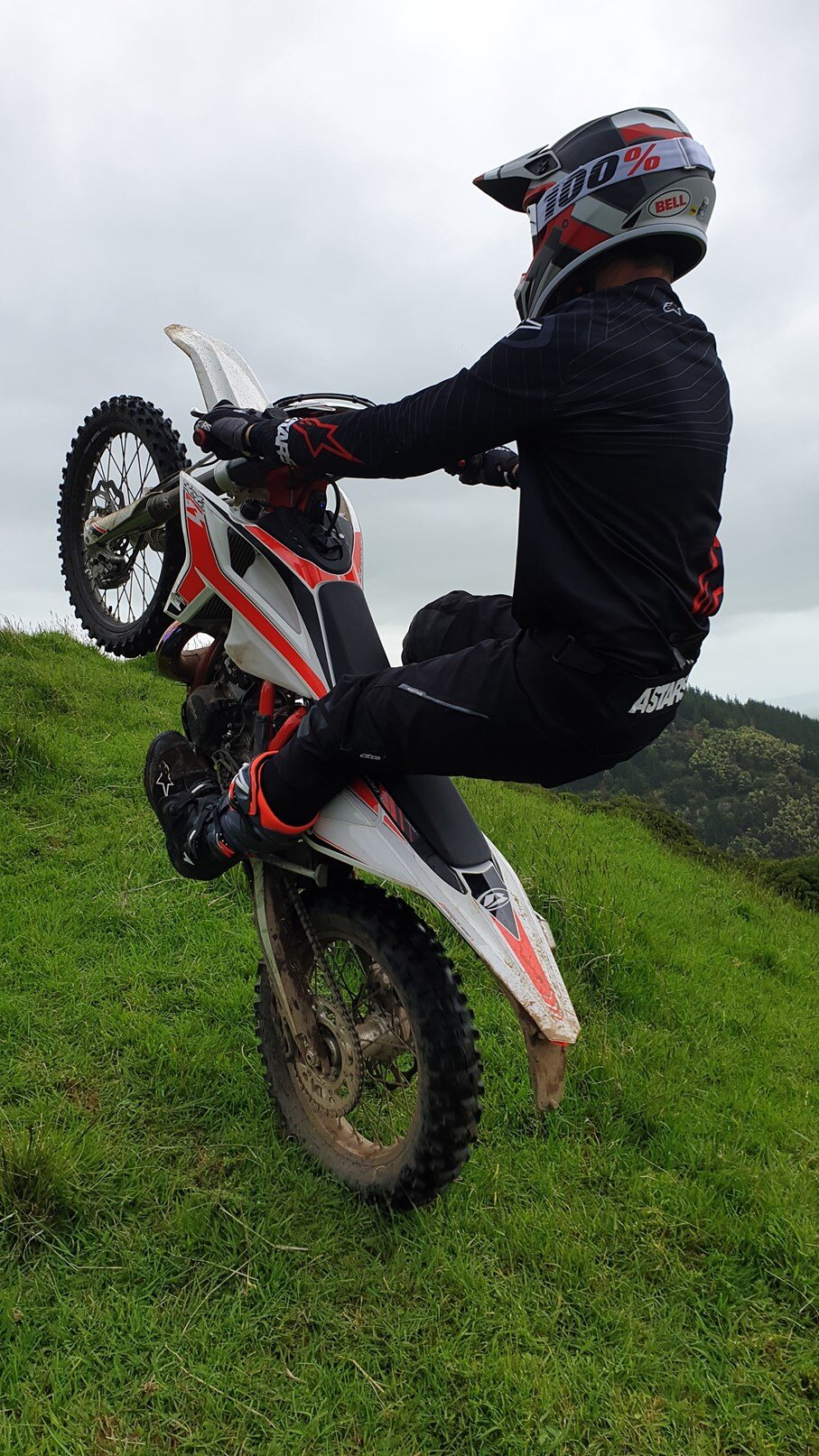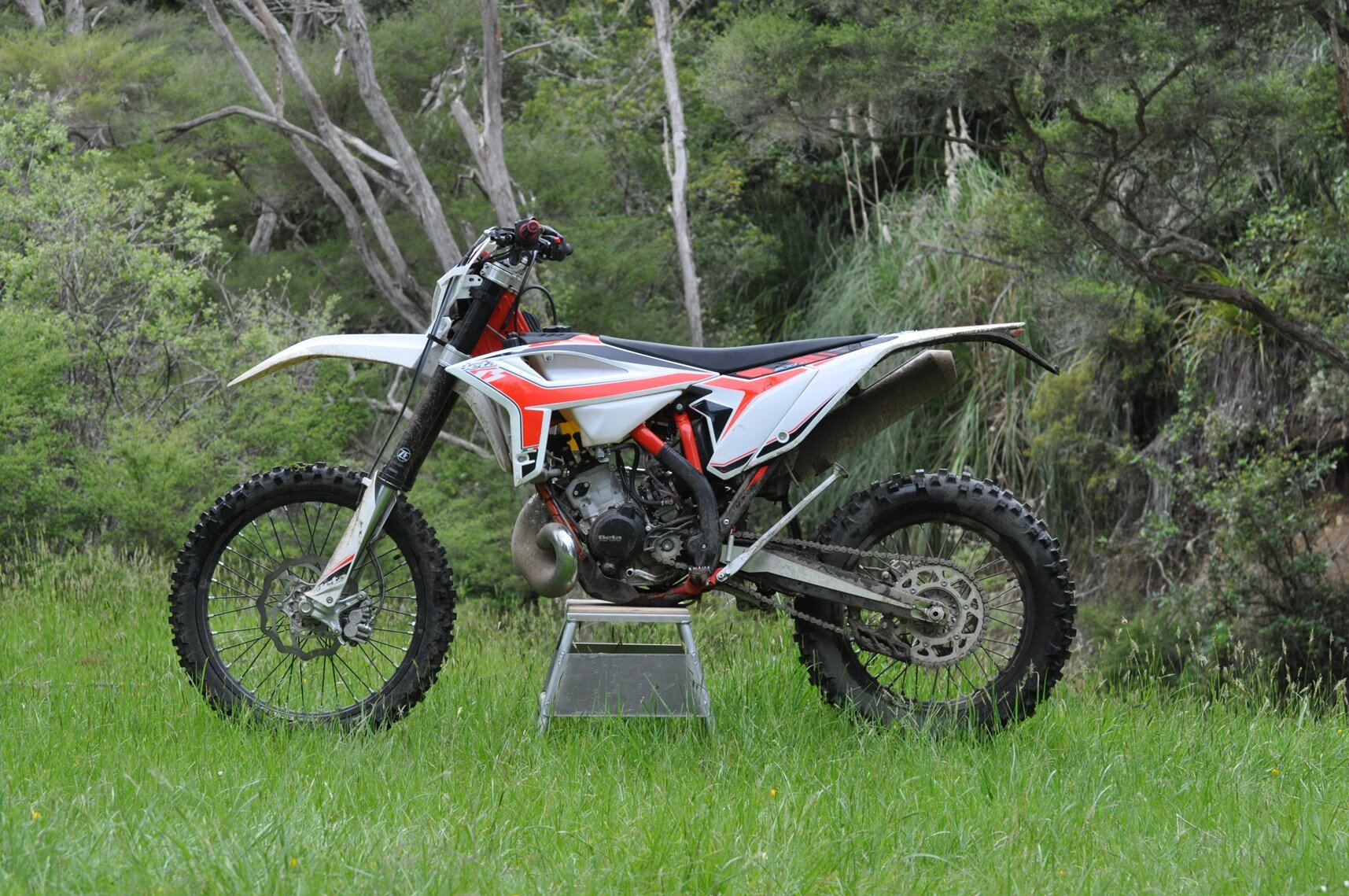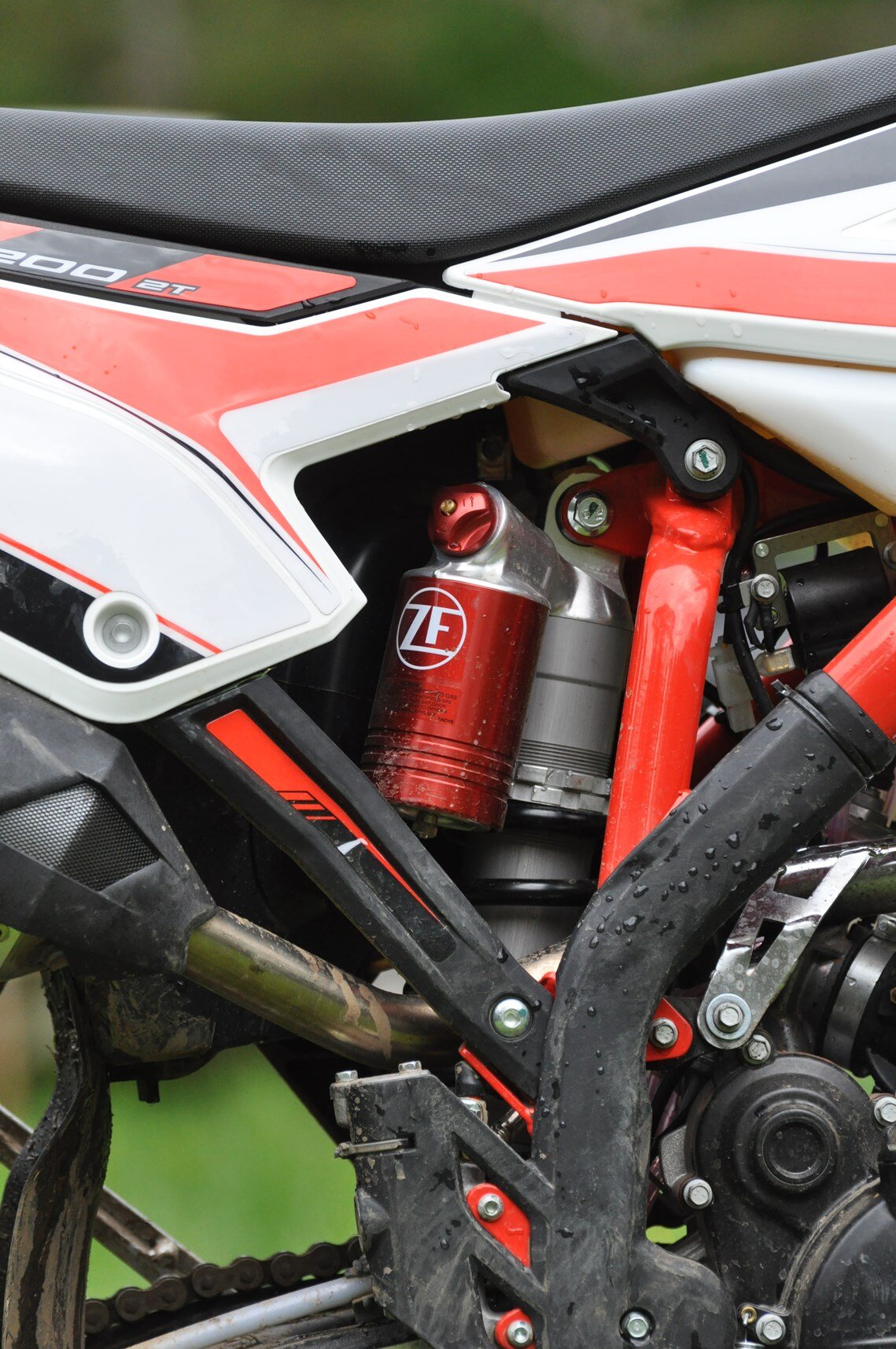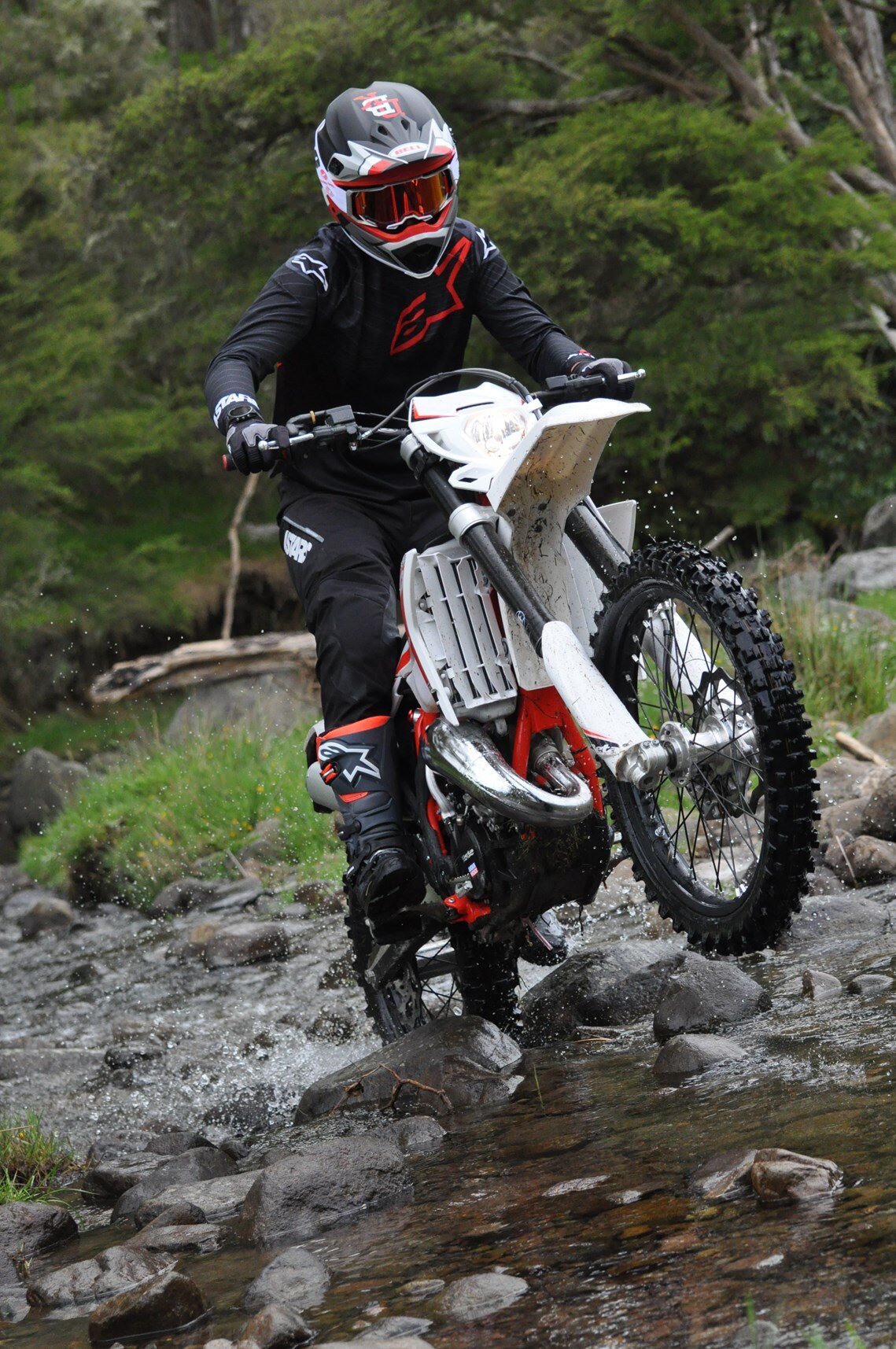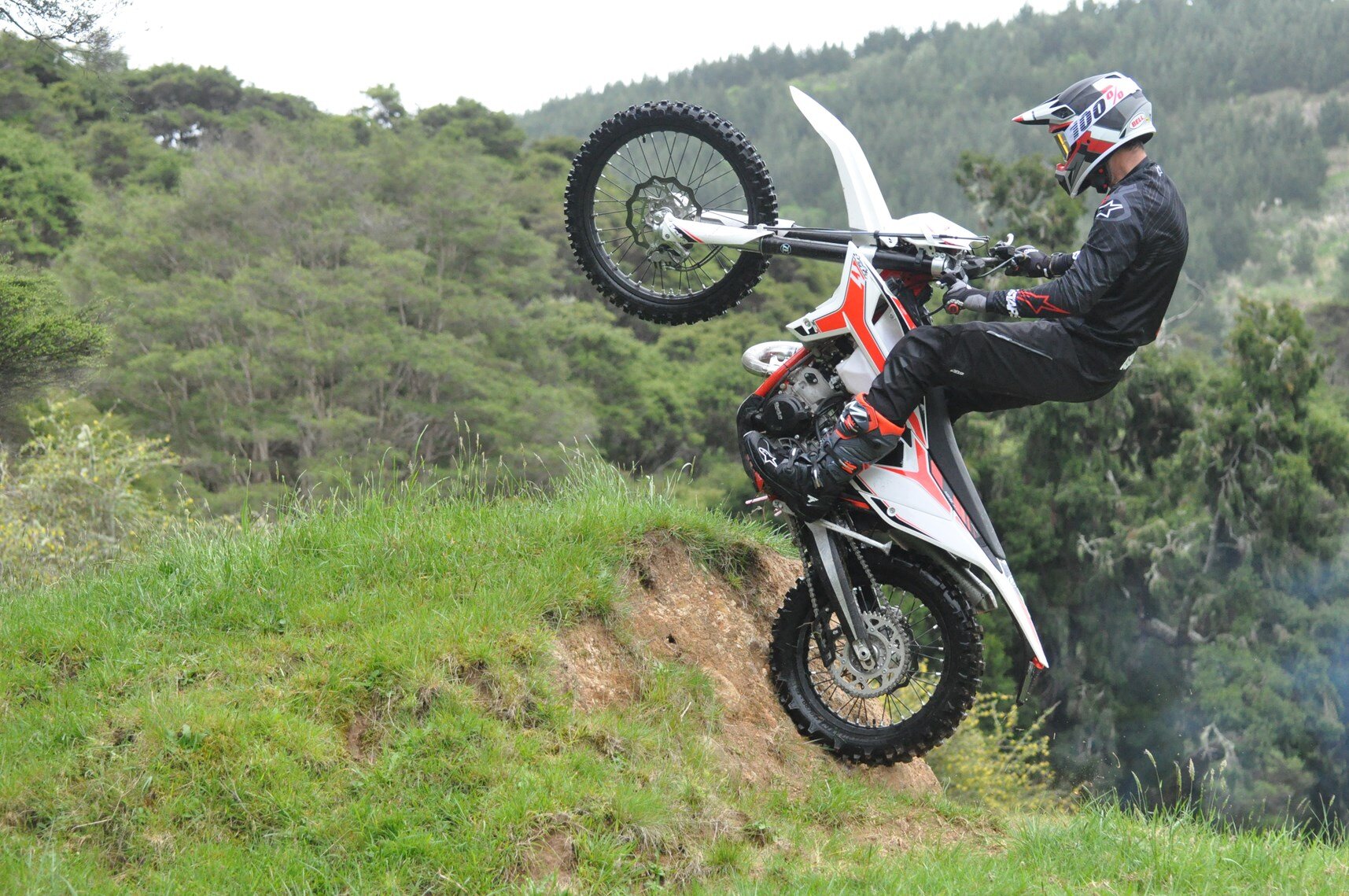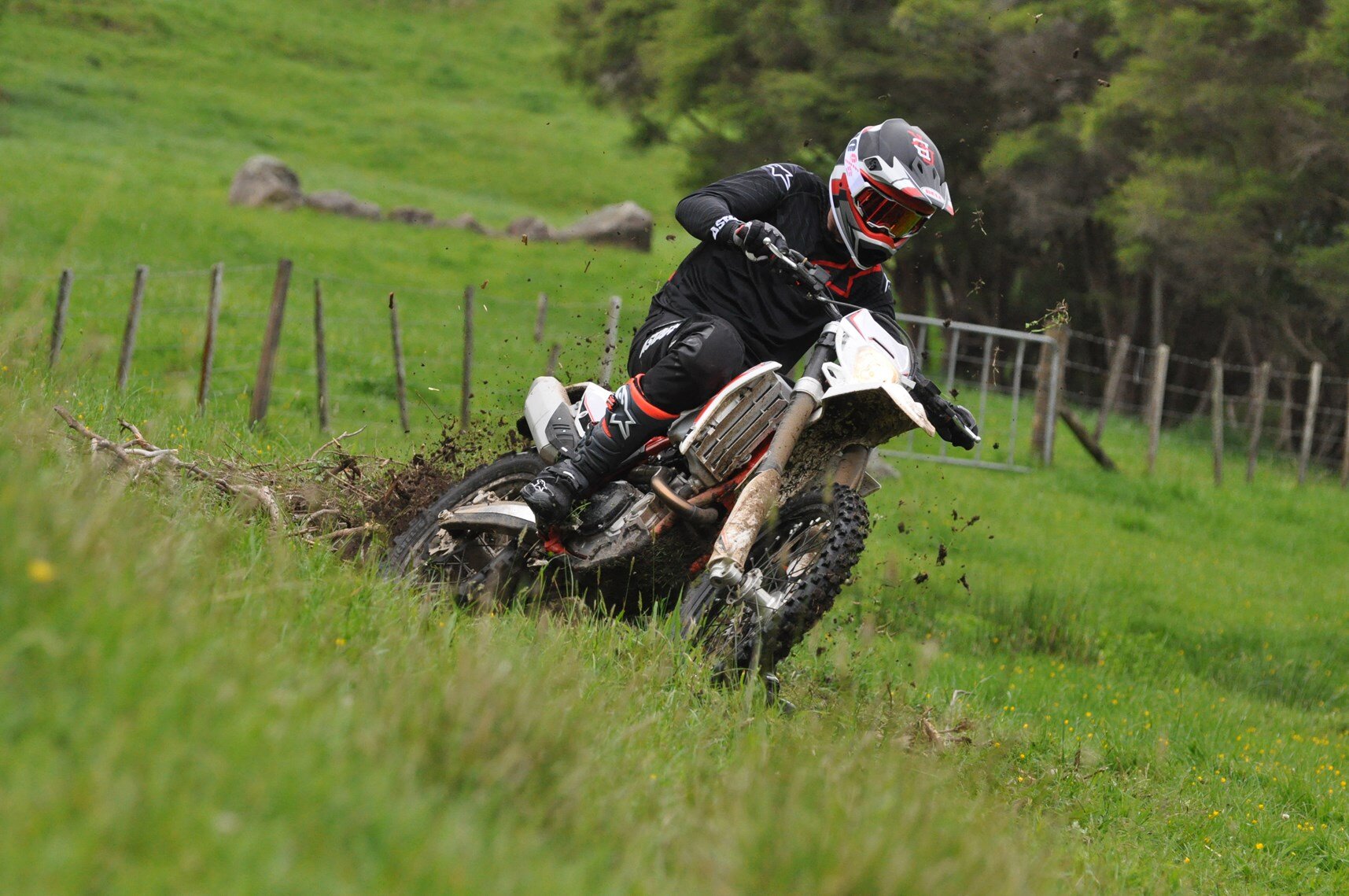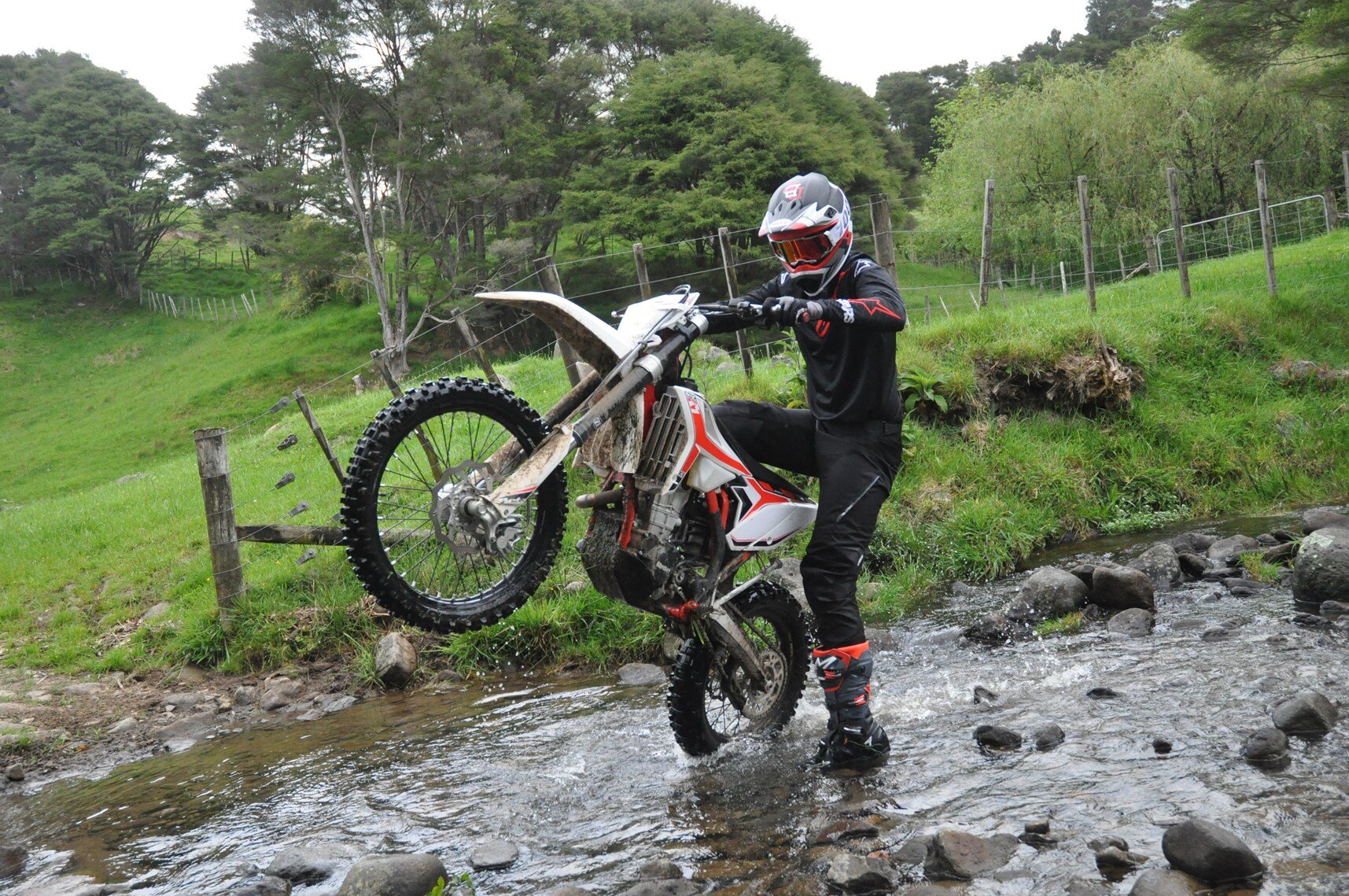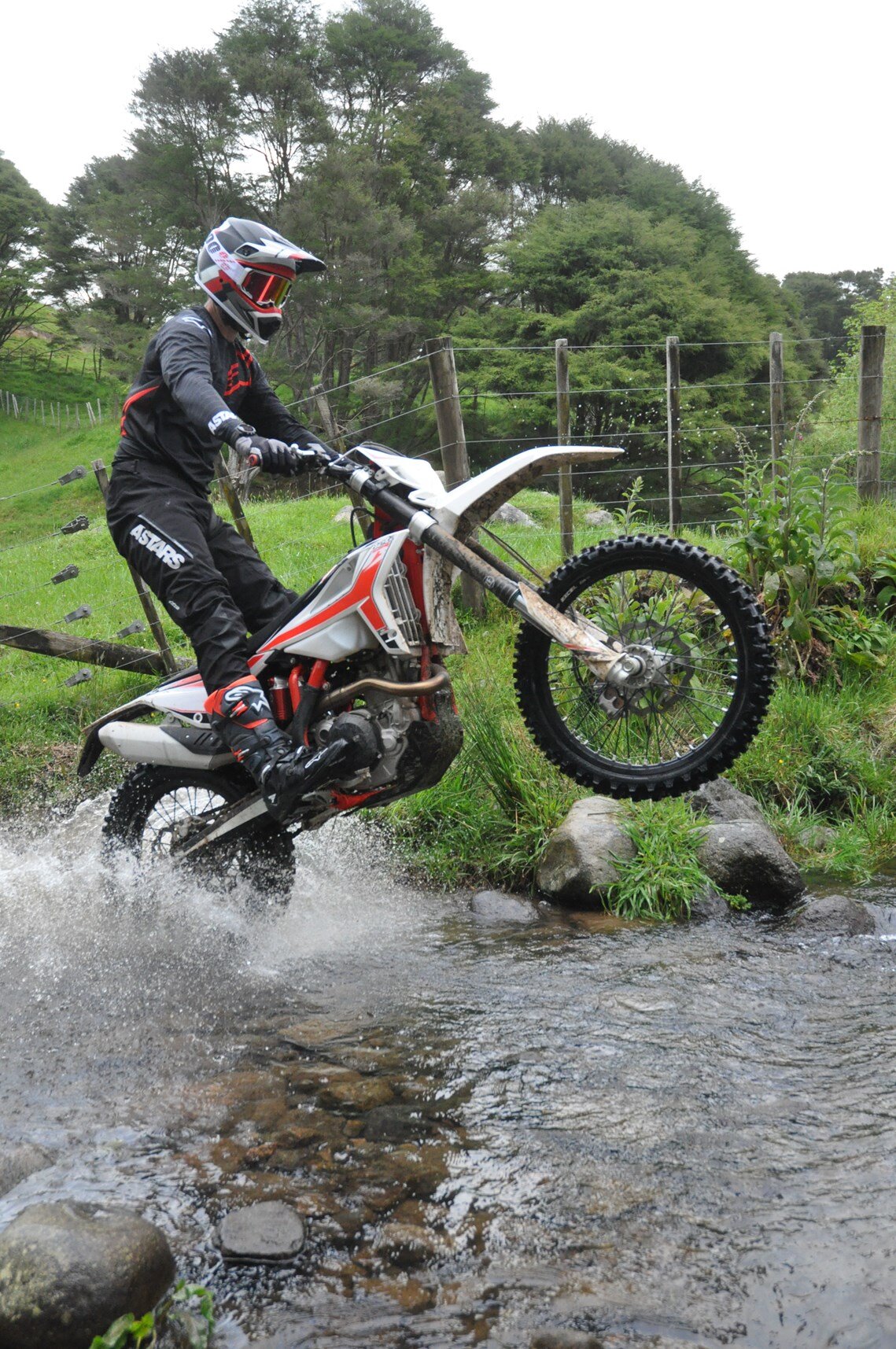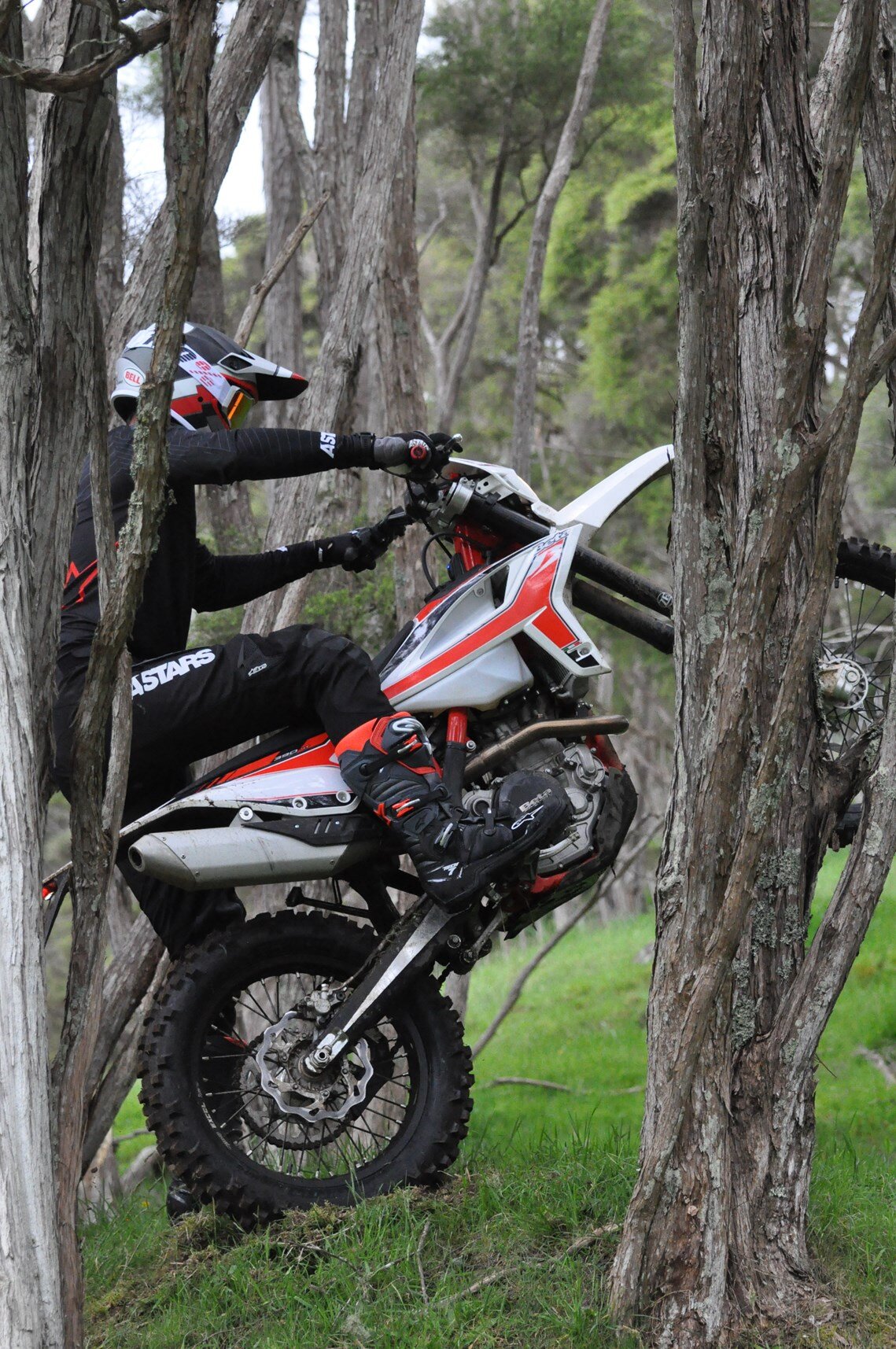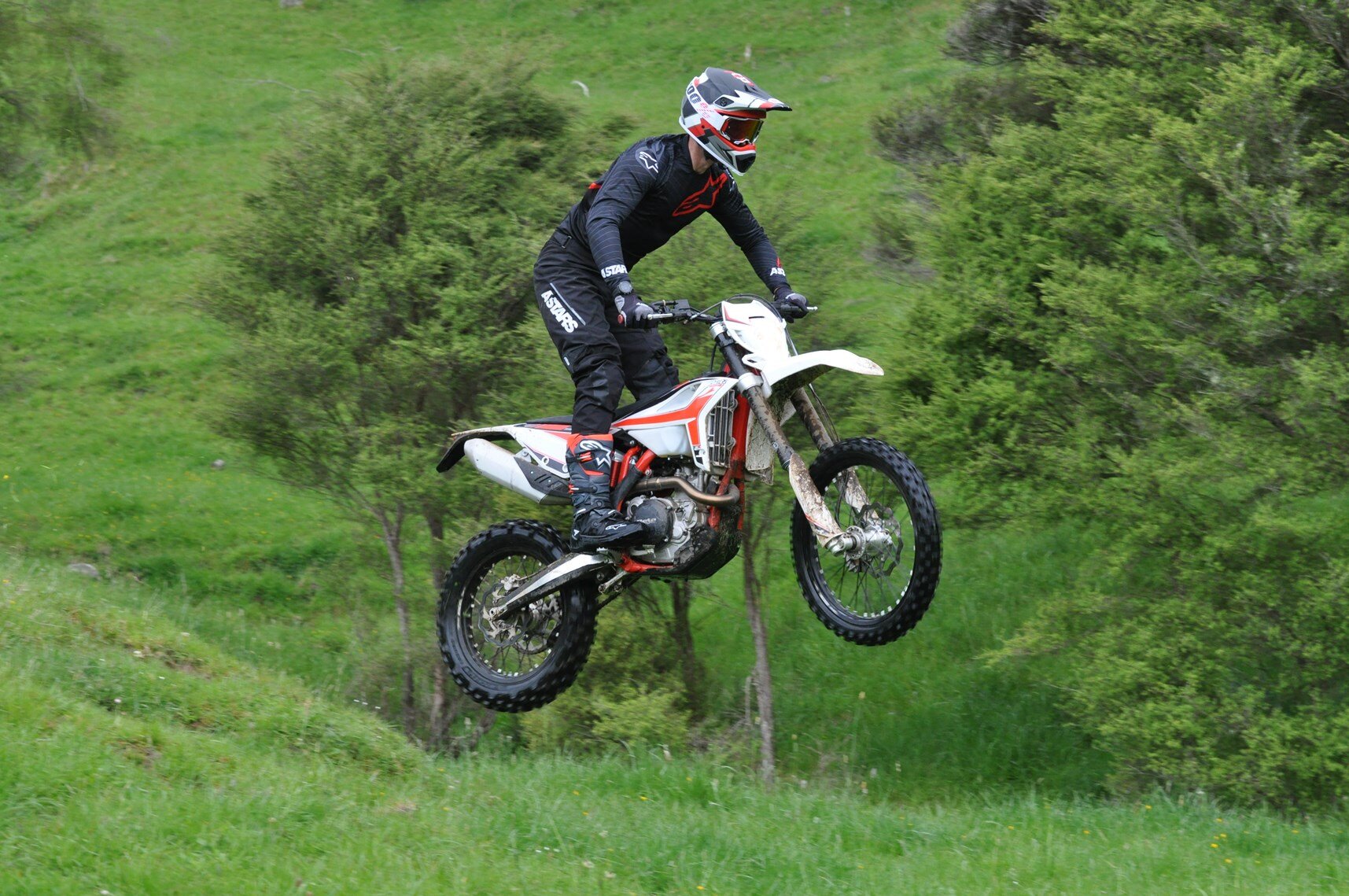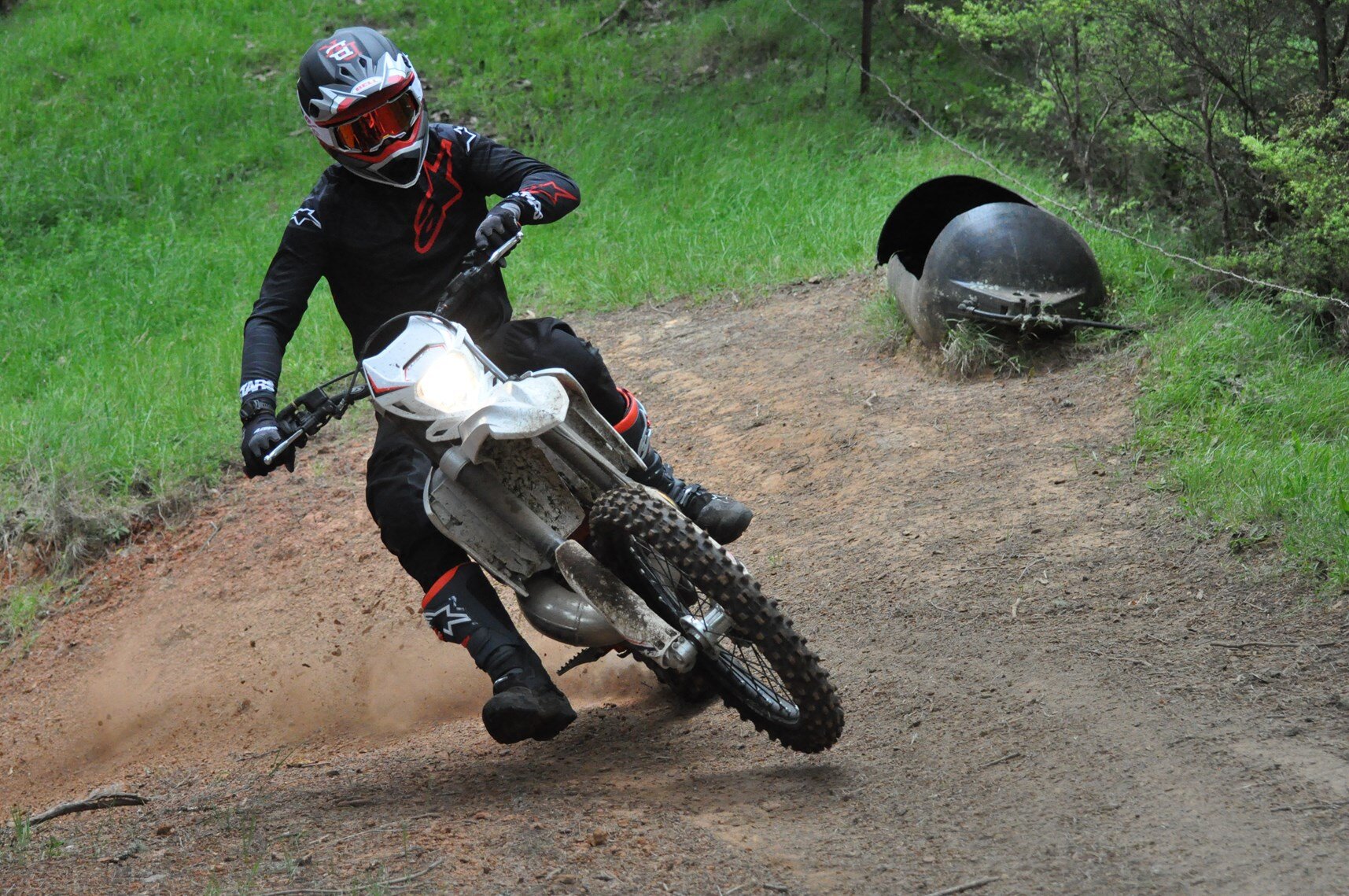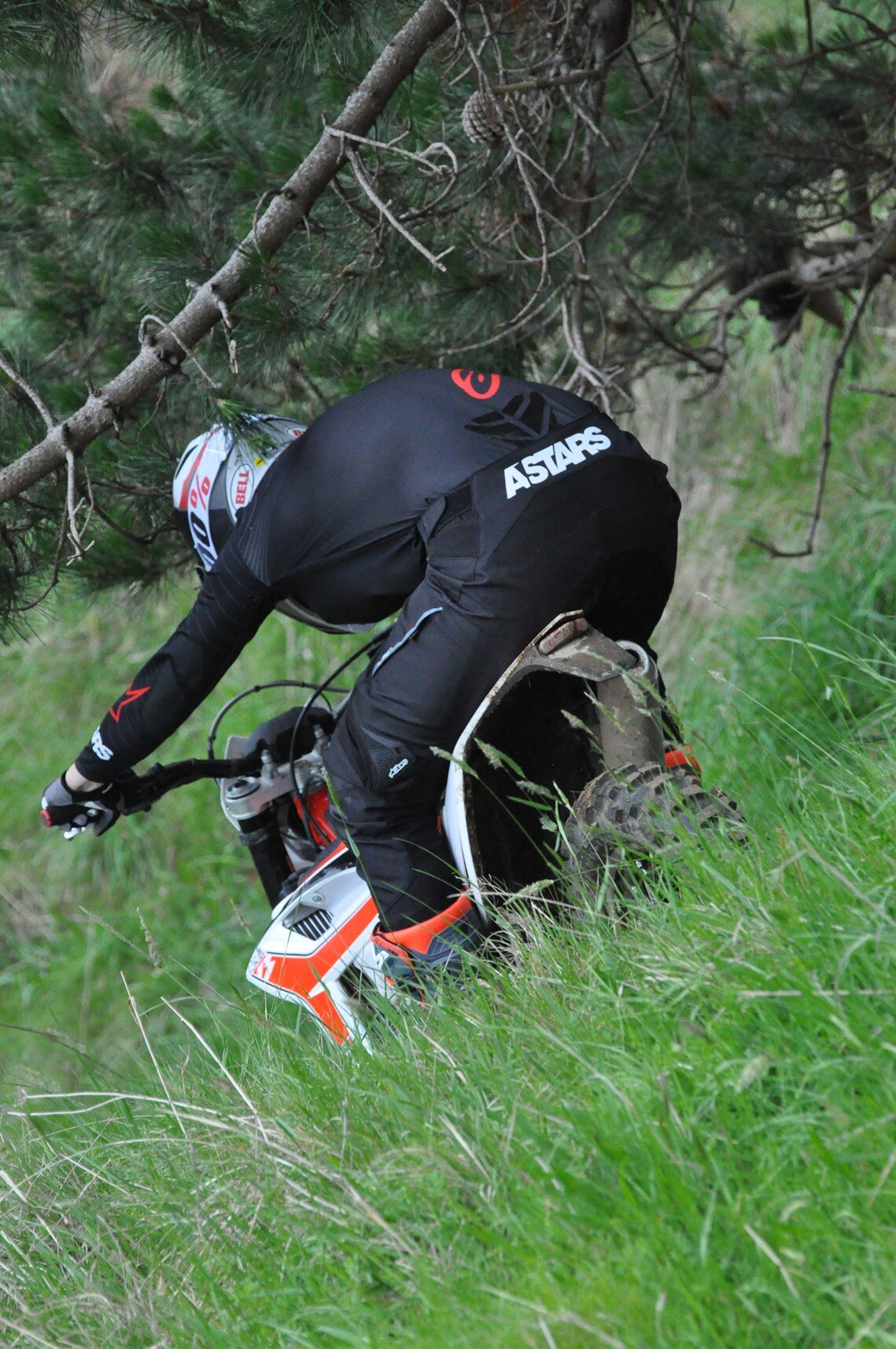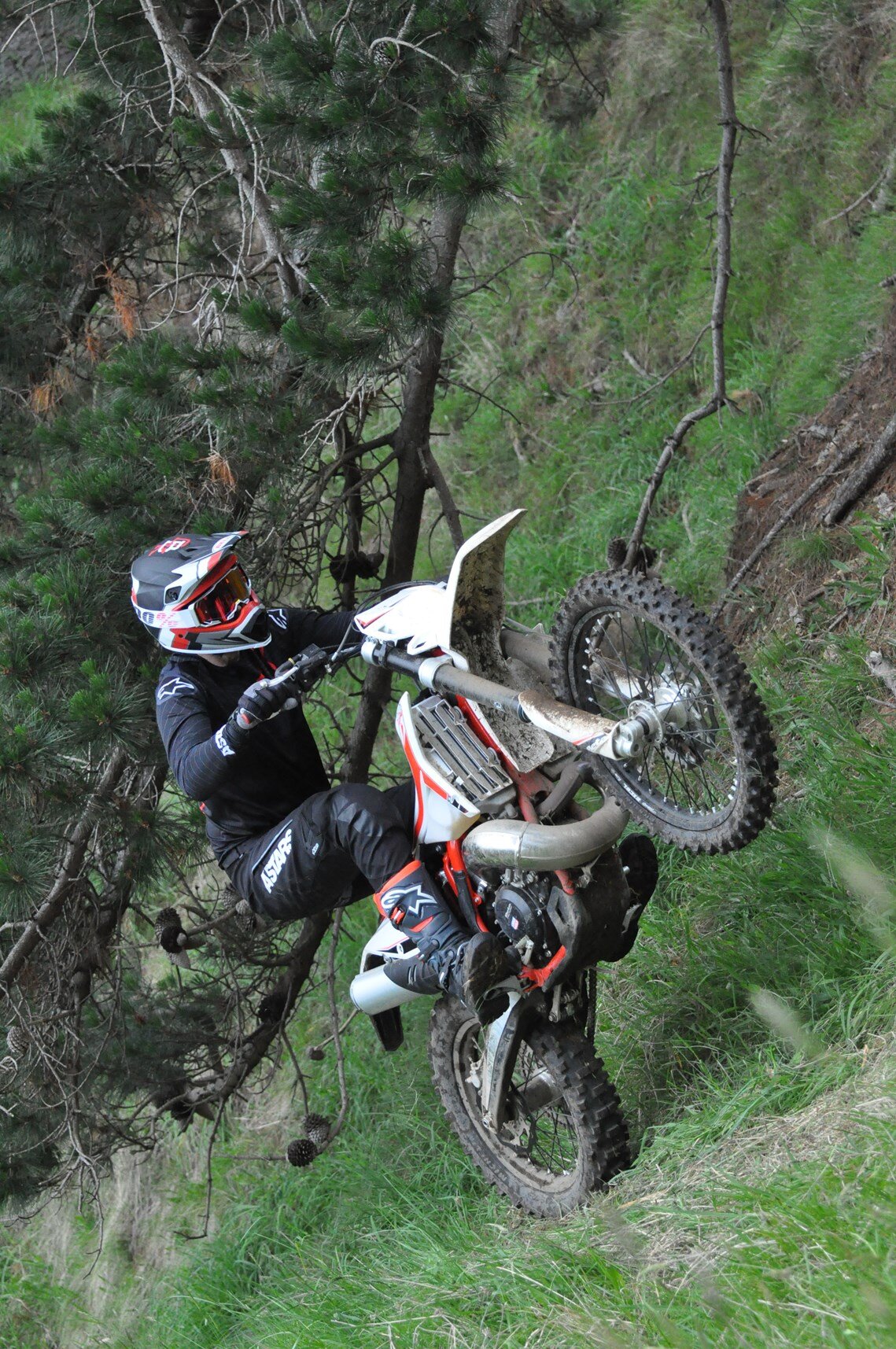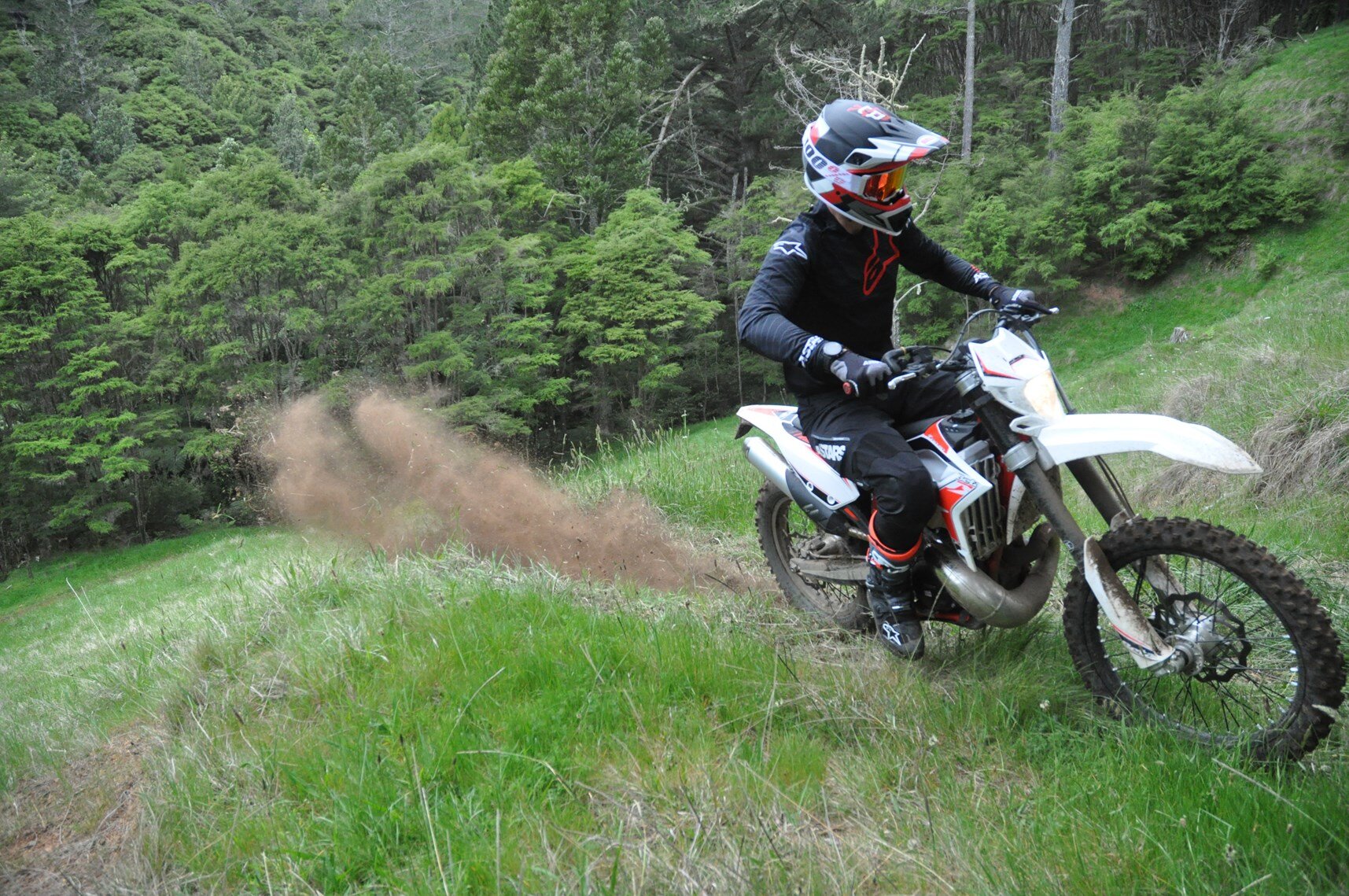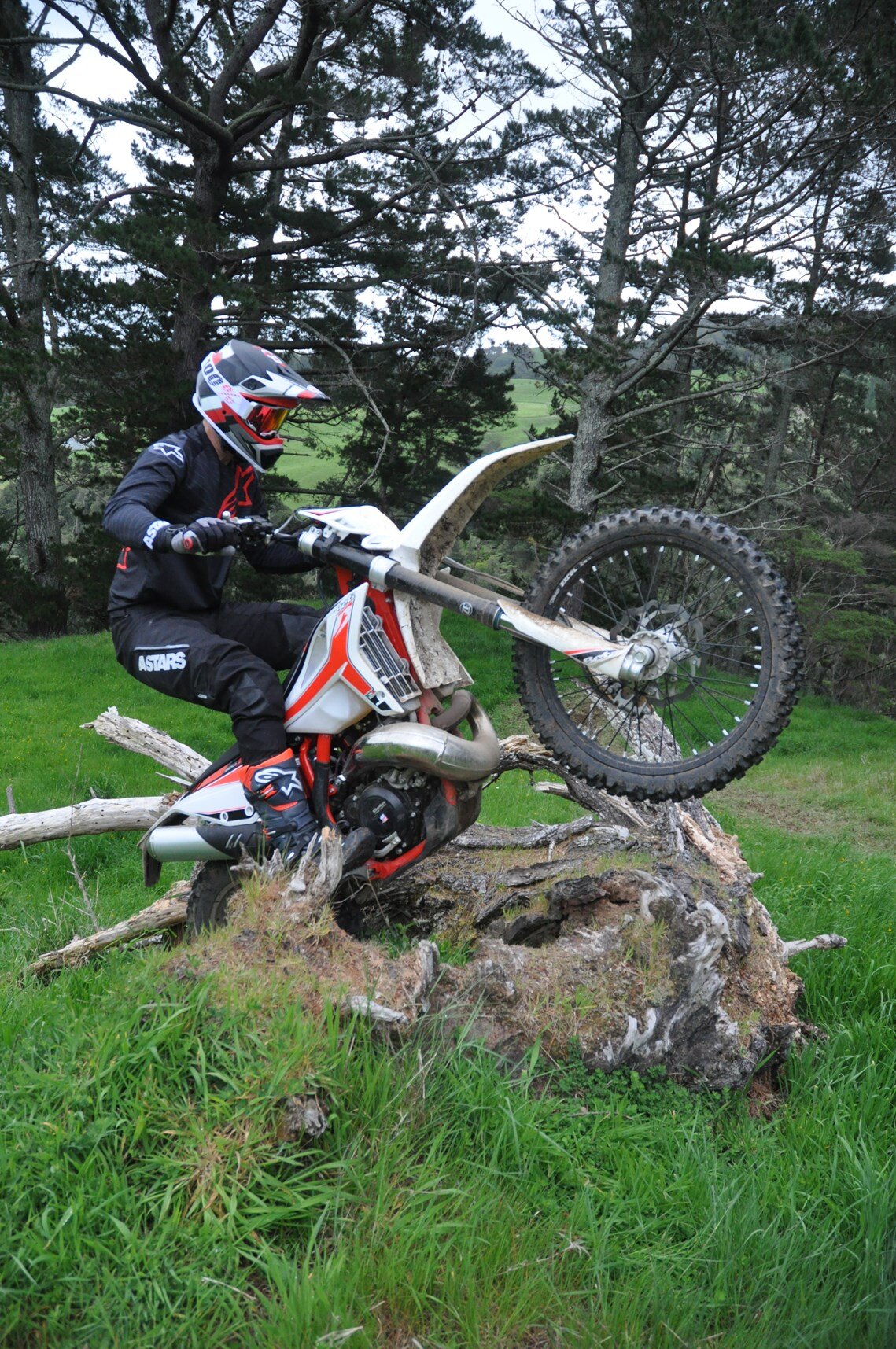LAUNCH REPORT: BETA 2020 RANGE
With the dropping of the 2020 Beta range in New Zealand, a few journos headed out to back country Matatoki to twist the throttle on the Beta model line up. And with a new Kiwi distributor with a bit of power behind them and a growing dealer network, the bikes from Italy will be showing up more around the country.
2020 BETA RR300
The 2020 Beta range is quiet extensive, even more so than perhaps KTM, which as you will know is saying something indeed. But unlike almost every other manufacturer, Beta only produce Enduro bikes, having taken zero notice of the motocross side of things.
Whether you like to pre-mix or straight pump it into the tank from the BP servo, you will find a bike from Beta that will suit. And Where as KTM have gone away from the very popular 200cc and grommet rocket 125cc - Beta have picked up the slack.
2020 Beta RR430
Beta RR480
Beta Four-Stroke Range
RR350 - RR390 - RR430 - RR480
The entire range of 4T models from Beta are now fuel injected, bringing them inline with the competition.
The RR350 - now a bit of a staple in the off-road world for its versatility - starts the stroker line up off. A quick revving engine that is easy on the arms and could be the bike that converts you to the ‘dark side’.
The RR390 is a long-stroke version of the 350, and produces more torque with a lower, more gutsy power curve. It is not snappy like the RR350 so you can enjoy the ride more, while being a little lazy at the same time.
The RR430 is the brands version of a 450. A punchy and little more aggressive engine that could compete up against any other bike in the class. The reasons for not just making it a full blown 450 are unclear. But what is clear is that turning the throttle on this bike results in a very quick acceleration
The RR480 is also a long-stroke version of the 430. Same engine top and bottom but with a longer rode and again producing a more forgiving throttle response than the 430. The big girl will be a little more rideable if you start to get a bit tired.
2020 BETA RR125
Beta RR300
Beta Two-Stroke Range
RR125 - RR200 - RR250 - RR300
As you can imagine, the two-stroke market is alive and well, thanks solely to the manufactures from Europe who took a never say die attitude towards the real heroes of the motorcycling world. Yes, the two-stroke. Still carbureted for 2020 but don’t turn your backs just yet.
The RR300 is one of the most torquey engines on the market today. It’s amazingly-strong bottom-end and punchy mid-range make it a favourite among testers the world over.
No line up of pre-mix machines would be complete without a 250 two-stroke. Beta’s version won’t blow you away with anything outrageously special. It’s just a good, solid workhorse that anyone could get on and be comfortable with.
The RR200 brings back the 200cc memories. That playful bike that makes you smile with pep, while not ripping your arms off the shoulder with its powerband. The KTM200 was probably one of the most popular bikes in NZ for a long while. Beta now fill that gap with an easy to ride, torquey low cc machine.
The RR125 - the bike for the Groms. The perfect balance between light and agile, while having quick, snappy power. Nearly every bush rider over the age of 30 remembers learning the basics on a 125. But nowadays, it’s all 250F’s. What a shame that is - or I mean…was.
Beta RR390
Beta Four-Stroke Key Upgrades
Engine
Completely redesigned crankcase with the aim of reducing weight and compacting rotating
masses. The distance between the center of gravity and the pivot pin has been reduced in
order to allow a significant improvement of the handling and the reduction of the pitch.
Total weight reduced by about 1.5kg
The Beta four-stroke engine
Clutch cover redesigned along with the crankcase. The cover has been redesigned to carry oil into the clutch in a more effective way
New flywheel cover
New water pump system: it improves the flow rate and then the efficiency of the heat exchange in the cooling system
Head and cylinder redesigned in the water passages areas
Revised oil circuit allows heat exchange between water and oil in the front part of the crankcase to keep the oil temperature lower
Redesigned steel clutch discs and made with new material. The clutch has a softer and more
graduated engagement
Gear shift lever redesigned in relation to the new crankcase
New optimized ECU maps
Chassis
New seat design and back end
Frame geometry and stiffness revised for greater agility and stability. Reduced weight and improved reliability thanks to the adoption of some micro-casted parts. Also improved comfort and vibration thanks to the new cylinder head mounts. Tighter in the lower part for improving the rideability along the single tracks
Revised swingarm, longer for increase traction and stability
New design (headlight mask, front fender, spoilers, airbox covers and rear fender) to improve ergonomics and functionality of each part
Redesigned seat
Rear subframe completely redesigned with an improved structure. The air filter box is now better sealed and more integrated with the subframe itself and with the other components
Air intake boot completely redesigned
Airbox mounting is now quicker and easier to be installed
The front fork is an evolution of the previous one-by-one version. Inside components completely reconceived in order to improve the absorption of violent impacts and control of the bike’s pitch. The setting has been completely revised in accordance to the new frame
New shock absorber with stability control at the braking stage: it improves grip and ground contact. The setting has been completely revised in accordance to the new frame
Cooling system equipped with integrated hoses integrated in the frame and with more efficient radiators. Improves heat exchange and allows engines to work at lower temperatures even in the most extreme conditions
New designed frame, pegs and side stand
Tank with a larger capacity, around 9,1L
Wider handlebar for improving the riding control
New exhaust layout in relation to the new rear part of the bike
New silencer protection
Side stand with wider base
New speedometer
New footpegs
New skid plate design
New design of side frame protections
New chain guide in relation to longer swingarm
New rear brake lever
Shorter gear ratio on RR 4T 430 and 480
New rear light
2020 BEAT RR125
BETA Two-Stroke Key Upgrades
Beta RR200 engine
Engine
Adoption of the balancer shaft for reducing the vibrations
The increased inertia improves the power delivery
Revised head for improving low-rev torque (only for 250cc)
125 ONLY
Improved low-rev power delivery combined with greater high-rev acceleration, resulting in better performance across the rev range and more linear, manageable power output. The outcome is a considerably broader riding range, a crucial feature on a small-displacement engine.
New cylinder, with modified exhaust port and timing charts.
New exhaust flange.
New exhaust valve system and new boosters.
New clutch cover with air bleed system to give the clutch improved feel, a modified oil filler cap position.
New expansion chamber
New headlight design
Chassis All Models
Frame geometry and stiffness revised for greater agility and stability. Reduced weight and improved reliability thanks to the adoption of some micro-casted parts. Also improved comfort and vibration thanks to the new cylinder head mounts. Tighter in the lower part for improving the rideability along the single tracks
New design (headlight mask, front fender, spoilers, airbox covers and rear fender) to improve ergonomics and functionality of each part
Redesigned seat
Rear subframe completely redesigned with an improved structure. The air filter box is now better sealed and more integrated with the subframe itself and with the other components plus wiring loom and oil tank
Air intake boot completely redesigned
Airbox mounting is now quicker and easier to be installed
The front fork is an evolution of the previous one-by-one version. Inside components completely redesigned in order to improve the absorption of violent impacts and control of the bike’s pitch. The setting has been completely revised in accordance to the new frame
New shock absorber with stability control at the braking stage: it improves grip and ground contact. The setting has been completely revised in accordance to the new frame
Cooling system equipped with integrated hoses integrated in the frame and with more efficient radiators. Improves heat exchange and allows engines to work at lower temperatures even in the most extreme conditions
Swing arm, frame and subframe are all fresh for 2020
Tank with a larger capacity, around 9.5L
Wider handlebar for improving the riding control
New exhaust layout in relation to the new rear part of the bike
RR 2T 125 inherits the exhaust of the Racing MY19 version
New silencer protection.
Side stand with wider base
New speedometer
New footpegs
New design of side frame protections
New chain guide in relation to longer swingarm.
New rear brake lever.
New rear light
Instructions for the Australia market
Likes
There is a lot to like about the new Beta range for 2020 - so let’s take a minute to chat about it.
Starting with the baby of the range - the RR125. Even though the whole range is meant to share the same frame, ergonomics and measurements, the 125 somehow looks and feels a lot smaller than the rest. The lightness of the bike, matched with its extremely torquey (for a 125cc) engine makes this so much fun to pedal around on the pipe. It’s just as fun playing in the rocks and streams - popping over just about anything in its path.
The tool-less removal of the seat should be a staple for manufactured in 2020. The easy to push button on the side gives you access to the battery, electrics and two-stroke oil container - in a rush, should you need it.
Rebound on the other fork
Pre-load adjustment & compression on the one fork
The suspension on the front is pre-load adjustable, which makes these forks a real asset for the average rider who is looking for comfort during a day in the saddle, and adjust-ability for when getting off the couch after a long winter.
An easy to access and read mapping switch that you actually feel a difference in. Having been relocated from the bars to the frame means less chance of knocking it during a crash.
The ride position is very comfortable right across the board - two-stroke or four-stroke. Being a steel frame, it is more akin to a Euro feeling bike, which, of course, makes sense as it comes from Italy. Everything seems to have been engineered with a purpose and unsurprisingly, these are the best Beta motorcycles that we have had the pleasure of swinging a leg over.
Seat removal system
Dislikes
Nothing is perfect and it would be a disservice to not point out the aspect that we think could have been done better.
On the two-stroke lineup, the hydraulic clutch cable goes into the casing on the right-hand side in what looks like a very precarious position. The banjo bolt sticks out and we could see potential to clip that off during a crash or even if you side-swiped something. The four-stroke model have a better slave cylinder placement.
The seat is thin and that creates a hard feeling through the butt. A little extra padding would have gone a long way.
The RR Racing models comes with superior components, a cool colour scheme and those KYB front forks.
I know the big rage these days is weight saving and with the reliability of starters and batteries these days, the kickstarter is all but obsolete. I would still prefer a kick start lever there just in case. And that goes out to all manufactures.
As good as it is that the forks are pre-load adjustable, the ZF suspension front and rear (formerly known as Sachs) is not quite up to what you would expect from a set of Japanese suspension units such as KYB or Showa. The ZF units were more than adequate for the trail riding that was on offer during the launch - providing a comfortable ride with good feedback and again, great adjust-ability. But we think that if you wanted to use your new Beta for serious racing you would have to address the setup. Or buy the RR Racing version which comes with KYB front forks.
Finish Line
Taking everything int consideration - the new 2020 Beta range might not change the way you look at Enduro bikes - but it will give you reasons to contemplate taking a punt on the RR models. Prices range between $12,795 for the RR125, up to $15,600 for the RR480 - comparable to most brands out there today.
Another cool feature is that if you plan to race a Beta for 2020, there is a contingency plan being crafted that could have you getting ‘paid’ to race you bike. Assuming you’re any good. That’s something no other brand is offering their race customers - as far as we know.
The only other factor that is still in the ‘unknown’ realm is how long will a Beta actually last? Only time will solve that mystery, and going by what we experienced during the launch, we would be more than happy to hold on to one for a while and find out for ourselves.
CLICK HERE to check out the Beta New Zealand Facebook page and stay up-to-date with the arrivals of the RR Racing machines. We think they are the bike you’re really gonna wanna take notice of!
(insert drool emoji)

